Simon estes honored
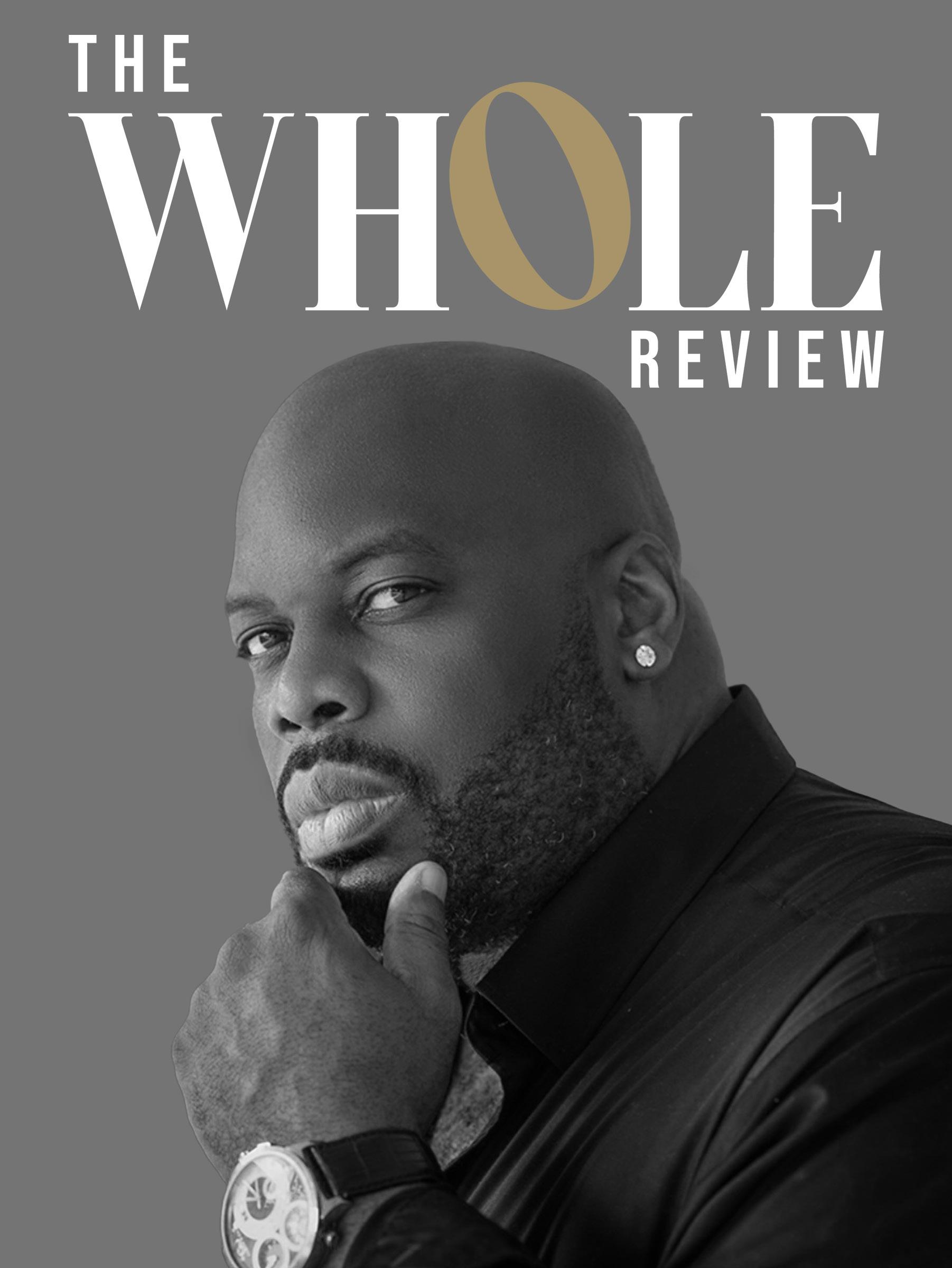
San Francisco Opera awards the legendary bass-baritone its highest honor.
too good to go
The mobile app that fights food waste one meal at a time.
Stop Asian hate
and more...
MARCH- APRIL 2023

"YOU CAN'T WRITE A BETTER SCRIPT"
MORRIS ROBINSON'S UNCONVENTIONAL PATH TO SUCCESS






"Every bite is harmonious"!TM www.symphonychips.com
a Courtney's Stars of Tomorrow publication
NO. 01

MARCH- APRIL 2023
EDITOR IN CHIEF
Courtney Carey
CONTRIBUTING
ART DIRECTOR
Emily Zier
COPYEDITOR
Justin Cohen
Meryl Siegman
CONTRIBUTING WRITERS
Liz Colavita
PHOTOGRAPHY
Unsplash, Shutterstock, April Visuals, Lawrence Brownlee, Robert Cahen, Courtney Carey, Francisco Fernandez, Kristen Loken, Margaret Norton, Leslie Rodriguez, Shoutfactory, Anna Yatskevich
Photographers are attributed unless information was unavailable at the time of publication.
4 MAR- APR 2023 wholereviewmag.com
VOL. 4 ISSUE
MORRIS ROBINSON
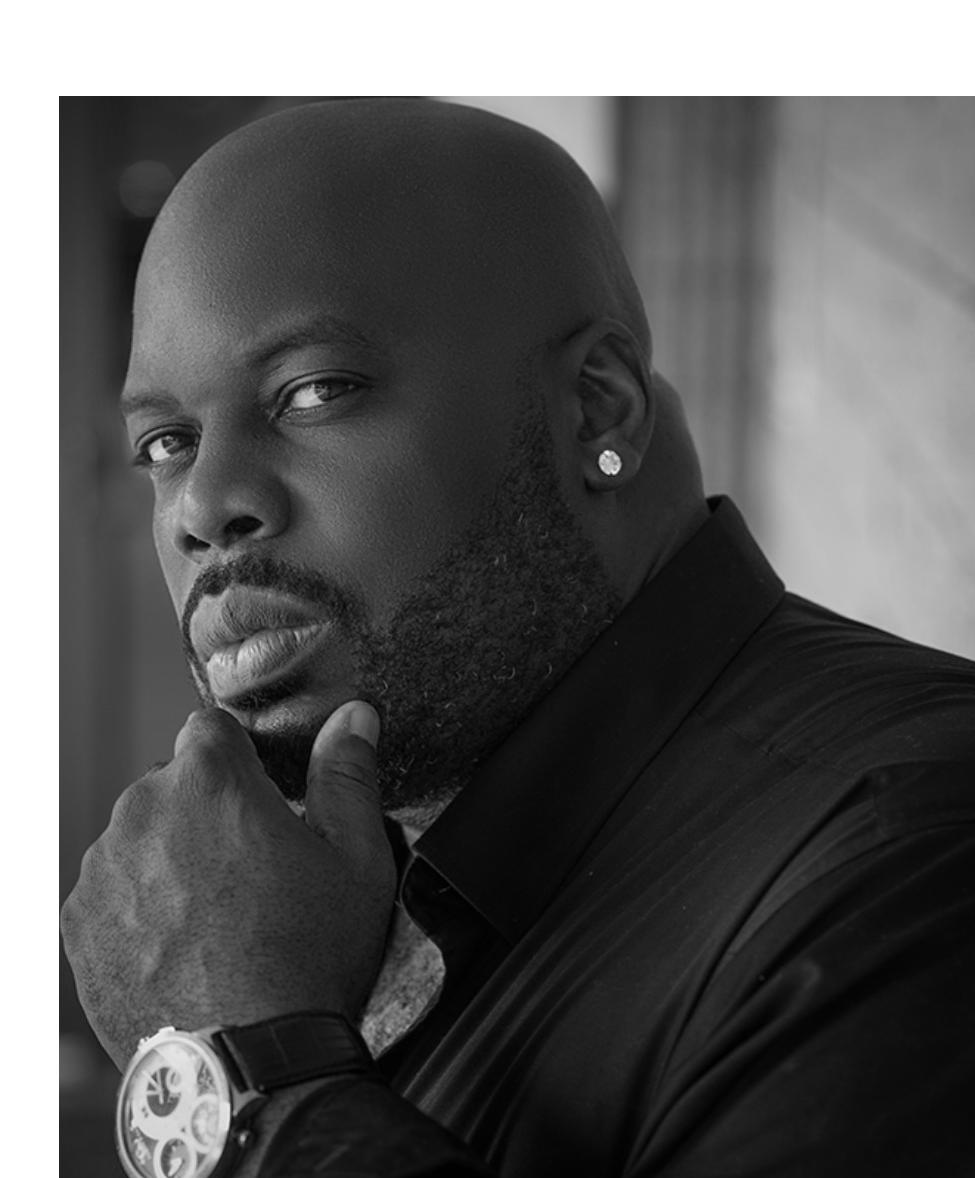
5 MAR- APR 2023 wholereviewmag.com COVER
OVERTURE
STORY
P. 30 Morris Robinson reflects on his unconventional journey from football to sales to opera to film.
CONTENTS
8
A New Age of Competition by Courtney Carey
The Duncan Williams Voice Competition and the Sam Hall Memorial Scholarship share their mission to provide financial resources, support, opportunity, and in the case of the latter competition, a fresh start to singers who might otherwise have been left behind.
11 Duncan Williams Voice Competition
14 Sam Hall Memorial Scholarship
17 Simon Estes receives San Francisco Opera's highest honor.
20 Robert Sims and Friends: Majesty of the Spiritual by Courtney Carey
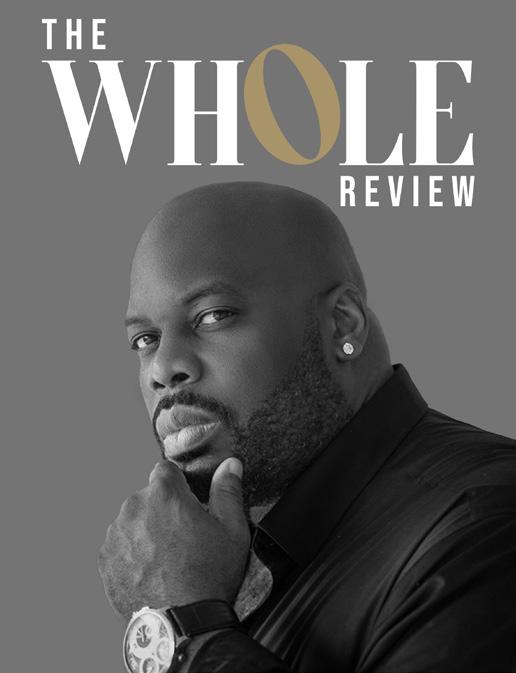

6 MAR- APR 2023 wholereviewmag.com
Credits
38 AMPLIFIED 22 Problem Solving: Addressing racism and mischaracterizations in the standard opera canon. by
30 COVER STORY You Couldn't Write a Better Script by Liz Colavita 38 Stop Asian Hate: A Call for inclusion and understanding by
42 Fractured Mosaics an operatic response to antiAsian racism from Louise Barder IN TEMPO 44 Forgotten Voices- Music Kitchen Food for the Soul 46 Apple Music Goes Classical 48 J'nai Bridges to appear in PBS special 49 Will Liverman's The Factotum is a hit FOOD 50 Too Good To Go 52 Coconut & Almond Crunch Bread Pudding 55 Tomato Chutney 56 Buttery Tart Dough 58 Surprise Bag Tomato Tart
Cover
Photographer: Lawrence Brownlee
Courtney Carey
Courtney Carey
EDITOR'S LETTER
This issue of The Whole Review is unique. Why? It is the first time that we have been able to follow up on past stories we have written. Stories, by the way, that have positive outcomes.
In the April-May '21 issue, Liz Colavita wrote an article entitled When Worlds Collide, announcing the film version of Mozart's The Magic Flute was in progress and coming to theaters soon. Well, it has arrived, and I am thrilled to feature one of the film's stars, the outstanding bass Morris Robinson, on our cover. Because of the production schedule, we release The Whole Review in the middle of the month each production cycle. That means that as of the release of this issue, the movie will have been available in US theaters for seven days. To everyone reading this issue, please go support the film. It is not every day that an opera is made into a movie, and it is certainly

not every day that an opera singer gets a spot on the big screen. Opera singers Sabine Devieilhe, Rolando Villazón, and Morris Robinson appear in The Magic Flute. Check your local movies theaters for availability and times.
We also return to a story I asked Liz Colavita to cover for our second issue. As I was outlining the stories we would cover, I learned about Music Kitchen-Food for the Soul, Kelly Hall Tompkins' organization that takes classical music to homeless shelters. I scrapped another story and put the Tompkins story in its place. I've followed the organization ever since, including a stellar concert featuring the song cycle Forgotten Voices presented at Carnegie Hall last March. Now, a year later, Forgotten Voices is a CD! You can read more about the release on page 44. Finally, to those of you who look forward to reading our Health & Wellness section, you'll notice that we have not included one in this issue. That is intentional, as we are preparing our second Health and Wellness issue. It promises to be great. Until then, I bid you all happy reading and happy movie-watching!
Courtney Carey, Editor in Chief The Whole Review
7 MAR- APR 2023 wholereviewmag.com
Photo Credit: Francisco Fernandez
A NEW AGE OF COMPETITION
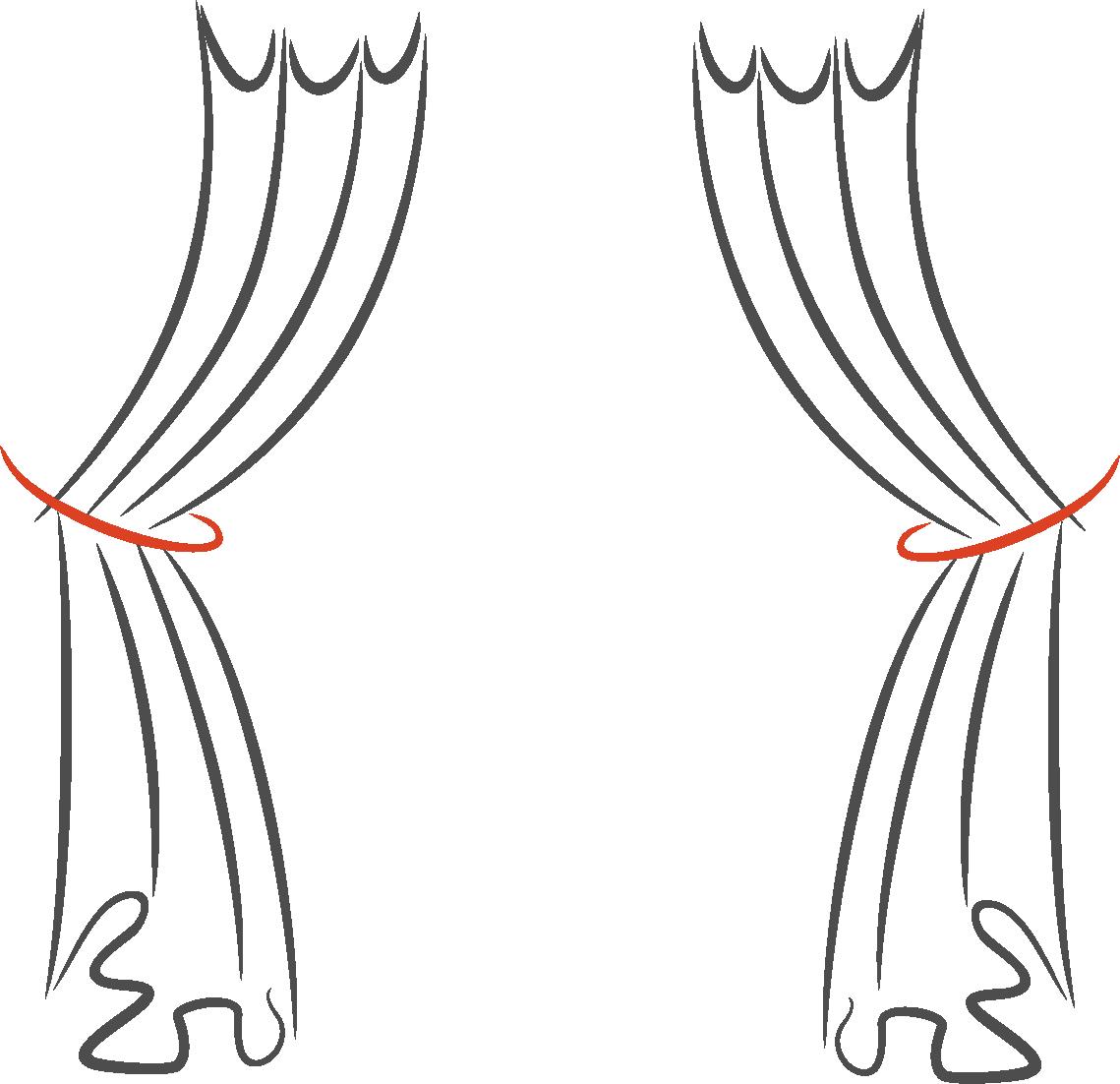 by Courtney Carey
by Courtney Carey
8 MAR- APR 2023 wholereviewmag.com OVERTURE
Cutting one's teeth in the opera business is a yearslong process that requires extreme discipline, determination, and focus. After studying vocal technique, acting, languages, and diction, voice teachers cut the proverbial umbilical cord and send their young students out to try, try, and try again to get in front of someone who can help them advance in their careers. Like it or not, for most singers, the way to be seen and heard is through vocal competitions. At the start of each season, opera companies, foundations, and societies post competition applications. On cue, bright-eyed, fresh-voiced singers sign up and pile into studios, halls, and cramped little rooms across the country, vying for a prize from- insert your favorite competition name here.
Competing is an art form in and of itself, requiring technical refinement and the temperament and bravura that make a singer a standout- a winner. An endless list of singers, such as Louis Quilico, Teresa Stratas, Jessye Norman, Frederica von Stade, Renee Fleming,
and Dmitri Hvorostovsky, won major competitions that catapulted them to stardom. And who can forget Angela Meade's astounding 53 competition wins that made her the envy of every singer on the planet?
Winning a prize, any prize, in a competition is exciting and praiseworthy. But let's be real here. Not all competitions are created equally. Some competitions focus on the music of a particular composer, some on specific periods or musical styles, and most are for singers whose age falls between the 20-35 year threshold. Competitions can be limited. Thus, I was delighted to receive the announcements for The Duncan Williams Voice Competition and the Sam Hall Memorial Scholarship with their shared mission to provide financial resources, support, opportunity, and in the case of the latter competition, a fresh start to singers who might otherwise have been left behind.
I appreciate the work of these visionary women who have, through their diligence and vision, ushered in a new age of competition.
9 MAR- APR 2023 wholereviewmag.com
a new age of competition overture C

10 MAR- APR 2023 wholereviewmag.com ALBUM ON SALE NOW Amazon Music, Apple Music, Spotify, YouTube Music, Tidal, Pandora, and iHeart Radio
The Duncan Williams Voice Competition aims to address systemic barriers faced by singers of color within opera and classical music. Our mission is to discover rising talent while supporting singers and meeting needs that are often unaddressed in traditional competitions.
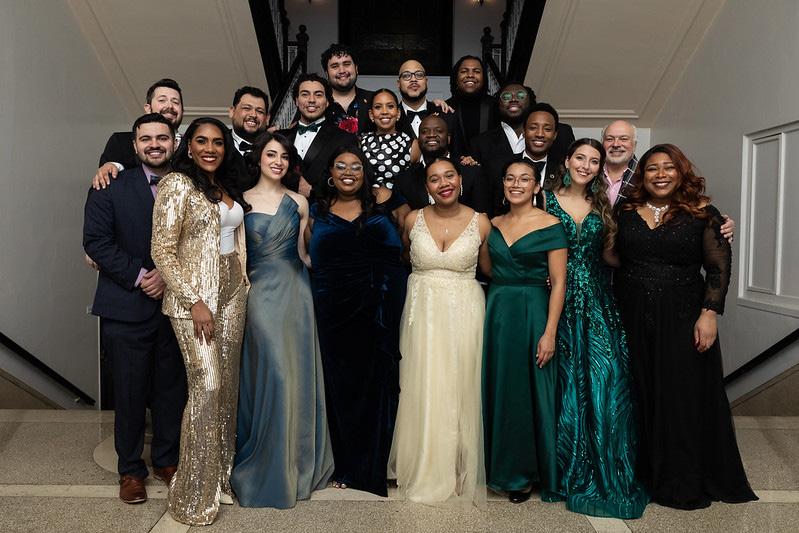

TRADITIONAL COMPETITIONS
High Costs to Participate
Application fees are a barrier that disproportionately affects communities of color and removing them is the first step to a more equitable competition.
Creating a competitive audition recording can be costly to many singers. From booking a recording space and engineer to hiring an accompanist, or even feeling pressured to buy a new dress, suit, or other audition-specific garments, singers have already invested heavily with no guarantee of getting an audition.

Age Limits
Most competitions have a maximum age for singers to be eligible. This has excluded many singers who came to classical music later in life, take a break in schooling, take time off from school to work and save


money, or who have other less traditional pathways toward a career in music.

High Travel Costs

Singers are often responsible for their own travel expenses from airfare and rental cars to hotels. This can often be prohibitive to participation for many singers.
Euro-centric Repertoire

Many competitions focus on European canonical operatic repertoire, often excluding living and Black and Latinx creators.
A Single Performance is Considered
Most competitions generally award prizes based solely upon the performance the singer gives on that day. While we support competitions with this goal, it sometimes leaves out other attributes that make a great artist.
11 MAR- APR 2023 wholereviewmag.com a new age of competition overture
J'nai Bridges with 2023 Duncan Williams Finalists
Duncan Williams Voice Competition
No Fees

The Duncan Williams Voice Competition is a no-fee competition We hope to address barriers related to costs by:
Encouraging homemade recordings (iPhone, Android, zoom recording.)
Support and reassure singers that they should audition in clothes that they feel comfortable and confident in with no expectation of traditional “formal” audition attire.

Granting partial subsidies on a case-by-case basis to singers with demonstrable need.
Open to Anyone 18+
Our Developing Artist division is for singers ages 1825, and our Emerging Artist division has no upper age limit to accommodate singers of any age.
Travel Costs are Covered
Should singers advance to the later rounds of the competition, travel-related expenses will be covered. This includes flights, overnight accommodation, and travel to and from the venue during the semi-finals and finals in New York City.
Representative Repertoire Required
While each division has its own requirements, both include works by Black and Latinx creators.
Holistic View of The Artist
While singing well is always the focus of a great audition, the Duncan Williams Voice Competition has the goal of approaching each artist as an individual, taking into account the life experiences that bring them to the stage and inform their work on and off the stage.
Worker B Dawn Serum sits at the intersection of comforting beauty oil and potent serum, giving a one-two punch of moisture and skin brightening, firming, and lifting ingredients! With light hydration and lots of Vitamin C, Dawn Serum is perfect under sunscreen or makeup or as a summer moisturizer.


Feather-weight texture



Flawless foundation primer before make-up
Unscented/Natural Scent
Net Volume: 0.5 fl oz
Follow us on...
12 MAR- APR 2023
$
overture a new age of competition
Whose brainchild was the competition? How did the idea materialize?
AS: I first got the idea for the competition after experiencing the Sphinx Competition finals in Detroit in 2020. Their competition, for string players, is for Black and Latinx musicians. The finals concert was an overwhelming experience for me seeing all these musicians of color on stage. I thought about how special that might be for opera singers, but I put a pin in that idea as it felt a bit impossible. After learning about the Sphinx Venture Fund, I thought, "well if I have a shot at this, maybe this would be a way to do it?" and I was grateful that Manhattan School of Music and New York City Opera wanted to partner to make it happen. We named it after Todd Duncan and Camilla Williams, the first Black singers to sing at a major opera house in the U.S. (New York City Opera ) in the 1940s.

Who funded the competition? Why was their funding important? How did it impact the artists, even those who did not win a prize?
AS: We won the 2021 Sphinx Venture Fund Award and almost $100,000 to make the competition happen. Without that jumpstart, this venture would have felt nearly impossible. And Sphinx also offers a tremendous amount of support to talk through ideas and be connected with those who can help. Trying out a new idea like this without having to raise money simultaneously is a gift. It meant we could spend our energy on getting it right and spend our time and attention on the artists. We offered reimbursement for singers up to $50 for expenses incurred to make audition videos. We covered travel and accommodations for the 19 fi-
nalists to come to New York City for the finals. During the finals week we had family dinners, roundtable discussions of equity in the field, and had two master classes. We created our "Olympic Village" in one of the spaces at MSM where singers could hang out, grab snacks, and get to know each other. All finalists received a prize of $500. Our song presentation prizes were $750 each with four winners and our winners received $5000 and $8000 in each respective division. I think the most heartwarming moments of the week were watching the singers show up for each other in the song presentation and orchestra rehearsals by watching, cheering, helping record one another, etc.
What does the future hold for the competition?
AS: Now that we have shown the world exactly how important our competition is in the industry, efforts are underway to ensure this won't be the last Duncan Williams Voice Competition. We are hoping to raise a minimum of $50,000 before the 2024 launch in early September.
How can the public help?
AS: Donations can be made through our website: https://www.duncanwilliamsvoicecompetition.com/checkout/donate?donatePageId=633b173780666943de4329d2
13 MAR- APR 2023 wholereviewmag.com a new age of competition overture
Q A
Duncan Williams Competition Founding Artistic Director, Alexa Smith &
Finalist Photo Credit: Anna Yatskevich
Alexa Smith Photo Credit: Leslie Rodriguez
Sam Hall Memorial Scholarship
The purpose of the Sam Hall Memorial Scholarship is to support one talented and passionate operatic, or classical singer who is embarking, or re-embarking on their performance career later in life - just like Sam Hall did several years ago. We spoke with Jacqueline Bruce, producer and scholarship coordinator/administrator about the scholarship.

14 MAR- APR 2023 wholereviewmag.com
Sam Hall; Photo courtesy: Jacqueline Bruce
overture a new age of competition
Who is the competition named for? Why start this competition? Why is this competition important?
JB: This competition is named for Sam Hall, a 47 year old tenor who was relaunching his career when he died in a tragic motorcycle accident. Sam was a wonderful person - beloved to many friends, colleagues and supporters who were left bereft [after his untimely passing]. Since we all couldn’t be together for his funeral, we decided to put on a memorial benefit concert a year later to help his family and fund this scholarship. In the spirit of Sam, we wanted to award a singer starting, or restarting their career just like he was doing. This scholarship is important because it benefits someone who may be unjustly overlooked by the industry, even though we all know the 40s are the prime singing years.
What is his connection to classical music?
JB: I actually met Sam when we sang in chorus at Interlochen Arts Camp when we were 14, so he had a long history with classical music. He attended Interlochen Arts Academy his last year of high school. He did begin to pursue a bachelor degree at Eastman School of Music, but felt it was necessary to have a stable career in order to support his young family and decided to go into IT (Information Technology). When the kids were grown, he got back into singing and he was a lyrico-spinto tenor when he restarted his career. He won the Opera Idol competition in Columbus, Ohio and started getting roles at regional houses. Sam was singing lead roles with larger regional houses by the time he passed.
What were the requirements for entry?
JB: This competition was conducted entirely online. The requirements for entry were for the applicants to be OVER the age of 40 and not have started/restarted [their career] for more than 3 years. All had to submit videos of two contrasting arias in two different languages/styles + 1 personal portrait video of them answering a few questions.
What are the prizes?
JB: Just one prize: $1000
Who won the recent competition?
JB: Soprano Natalie Conte won the scholarship.
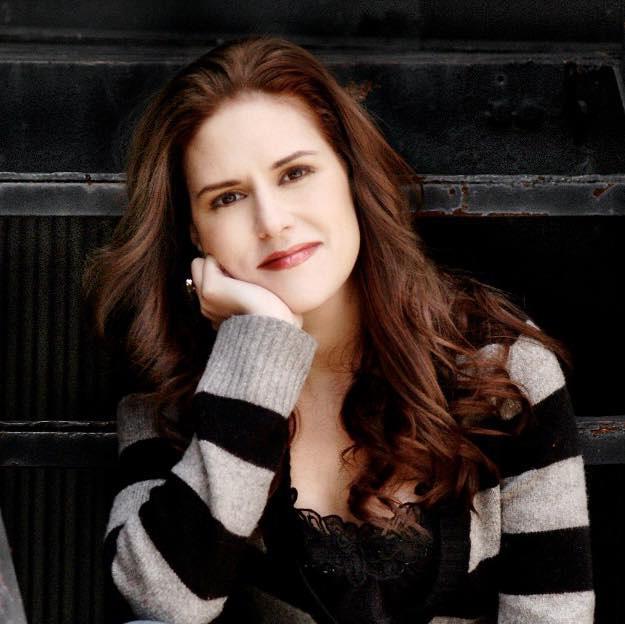
How can people donate?
JB: Donations were only accepted during the time of the memorial benefit in November 2021. However, we established another $1000 scholarship this past October for a student and camper at Interlochen Center for the Arts where people can donate anytime in Sam’s name to the Interlochen Memorial Fund.
Is this going to be an annual competition or biennial?
JB: Sam’s widow does not want to do another memorial benefit concert, but we friends are discussing the possibility of doing the scholarship in the future - I personally would like to honor him again.
15 MAR- APR 2023 wholereviewmag.com a new age of competition overture
Soprano Jacqueline Bruce enjoys an international career spanning the genres of opera, oratorio and chamber music.
NEVER STOP LISTENING

Courtney's Stars of Tomorrow
free music streaming is available on Soundcloud 24/7

San Francisco Opera Awards Bass-Baritone Simon Estes with Opera Medal,
the Company's Highest Honor
Renowned bass-baritone, educator and humanitarian activist Simon Estes received the San Francisco Opera Medal at the Company’s Medallion Society luncheon in the ballroom of the Ritz-Carlton on Wednesday, March 8. San Francisco Opera Tad and Dianne Taube General Director Matthew Shilvock presented the award, the Company’s highest honor, to Estes who spoke to the gathering about his trailblazing career in American music and the importance of art in our time.
While in San Francisco, Estes also worked with the Company’s Adler Fellows in a master class at the Diane B. Wilsey Center for Opera and revisited the War Memorial Opera House, the site of many past triumphs.
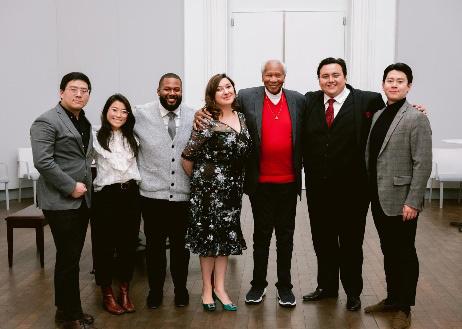
Estes said: “Opera is such an important form of art. It helps people all over the world because music is the international language that brings all of us together. I never dreamed I would go to Russia, China, Japan, Australia and New Zealand, but I have because of opera. You have a great op-
era company. I will always be grateful to [former general director] Mr. Adler for having invited me here.”
Born in Centerville, Iowa, in 1938, Simon Estes is among the first African American artists to achieve worldwide success in opera, appearing in 85 opera houses and with 115 symphony orchestras across Europe, Asia, Australia and North America. His operatic repertoire of 104 roles includes many interpretations such as the Dutchman in Wagner’s Der Fliegende Holländer and Porgy in Gershwin’s Porgy and Bess where Estes set a standard for generations of artists and audiences.
Estes has sung for six American presidents and other global leaders including Nelson Mandela, Desmond Tutu and Pope John Paul II. Along with his work on the stage and as an educator, he has set up foundations and raised millions at home and abroad to better the lives of children through scholarships, malaria protection and other humanitarian interventions. He holds 13 honorary doctorate degrees, including one from the Juilliard
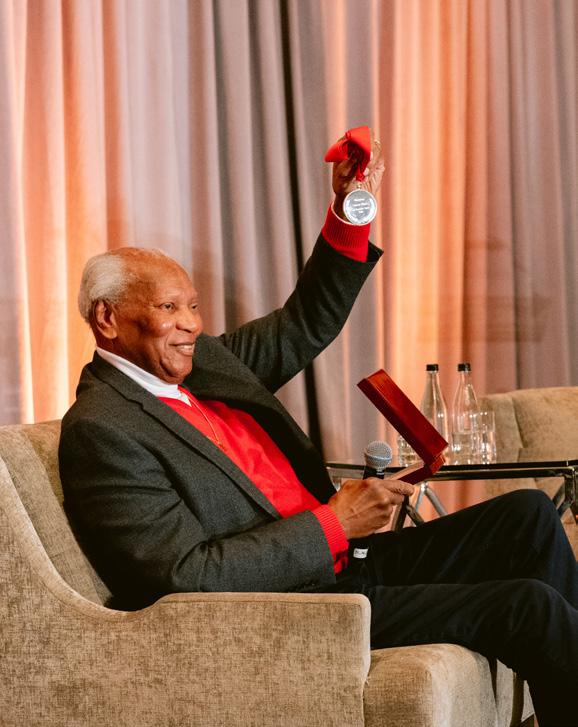
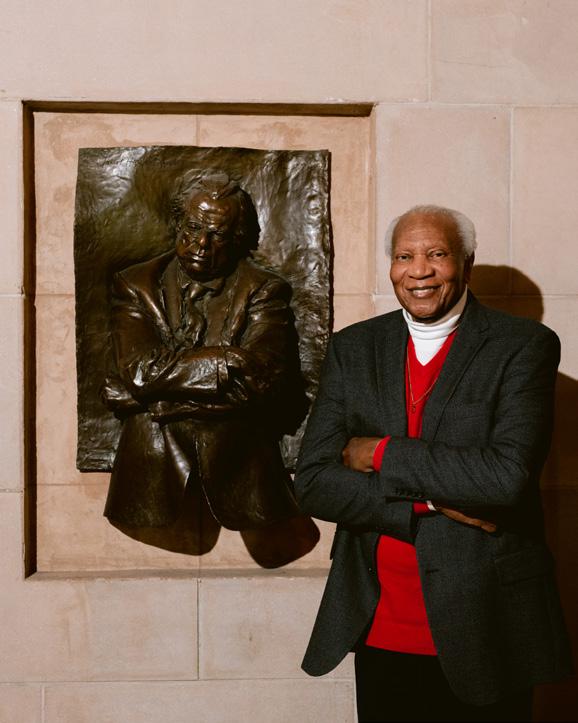
17 MAR- APR 2023 wholereviewmag.com simon estes honored overture
Simon Estes at the War Memorial Opera House with sculpture of General Director Kurt Herbert Adler; master class with the San Francisco Opera Adler Fellows; receiving the Opera Medal. Photos: Kristen Loken/San Francisco Opera
from Jeffrey S. McMillian San Francisco Opera
School, and is the recipient of numerous awards and honors. Last year, Estes was inducted into the Opera America Hall of Fame.
Estes’ career began in Europe with victories at prestigious voice competitions in Munich and Moscow and successful opera debuts in Berlin, Stuttgart, Hamburg, Vienna and Lübeck. As one of the few American artists to win an award at the 1966 Tchaikovsky Competition, Estes was invited to a reception at the White House where he met San Francisco Opera General Director Kurt Herbert Adler. San Francisco Opera was the first major American opera company to engage Estes when Adler invited him to sing the four villains in Offenbach’s Les Contes d’Hoffmann with Spring Opera, a San Francisco Opera affiliate, followed by his 1967 Company debut in Gunther Schuller’s The Visitation, a work based on Kafka’s The Trial. During his first season with the Company, Estes also performed Colline in Puccini’s La Bohème alongside two other rising stars making Company debuts: Luciano Pavarotti and Mirella Freni. Estes returned to San Francisco Opera in 1972 for the Company’s 50th season and performed Ramfis in Verdi’s Aida, Don Pedro in Meyerbeer’s L’Africaine and Raimondo in Lucia di Lammermoor
In 1978, Estes starred in Wagner’s Der Fliegende Holländer at the Bayreuth Festspielhaus, becoming the first male African American artist to perform at the theater built for the performance of the com-
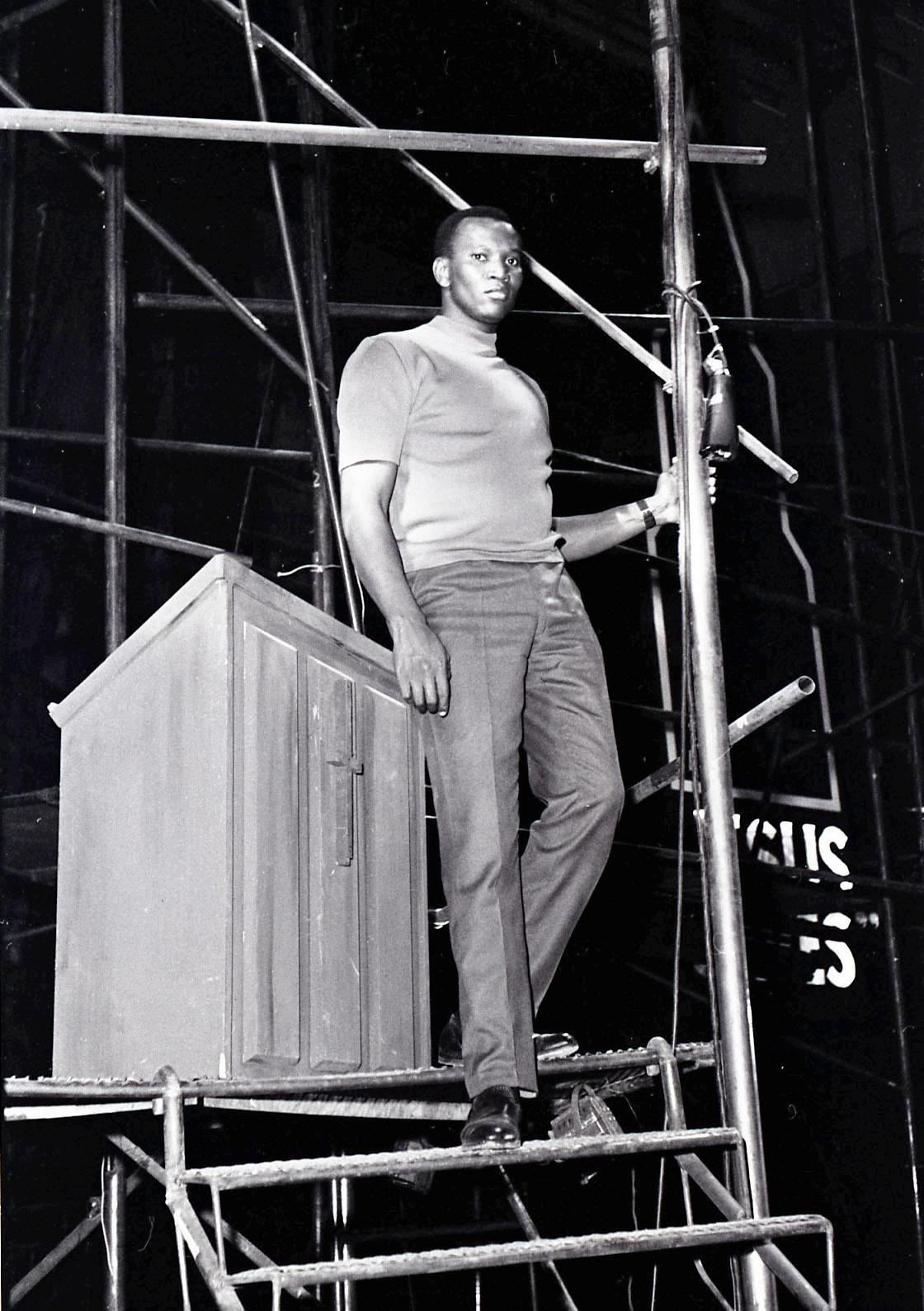
poser’s works. Wagner would become an important part of Estes’ stage repertoire throughout the operatic world. With San Francisco Opera, he sang the Dutchman in Der Fliegende Holländer in 1979 and returned the following season as King Marke in Wagner’s Tristan und Isolde.
In 1981, his final San Francisco Opera season, Estes appeared in Bizet’s Carmen as Escamillo with Teresa Berganza in the title role and as Amonasro in Aida in a new production that also featured Margaret Price, Ferruccio Furlanetto, Stefania Toczyska, and Pavarotti singing his first-ever Radames.
The Aida production was shared by closed-circuit TV to an audience in the Civic Auditorium and telecast via satellite live to Europe. Though not part of the telecast, the third performance in the run is regarded as one of the most memorable nights of San Francisco Opera’s first century. Suffering from illness, Margaret Price was unable to go on so Adler implored Leontyne Price to sing Aida on short notice. With the house packed to capacity, Price, Pavarotti, Estes and the entire artistic forc-
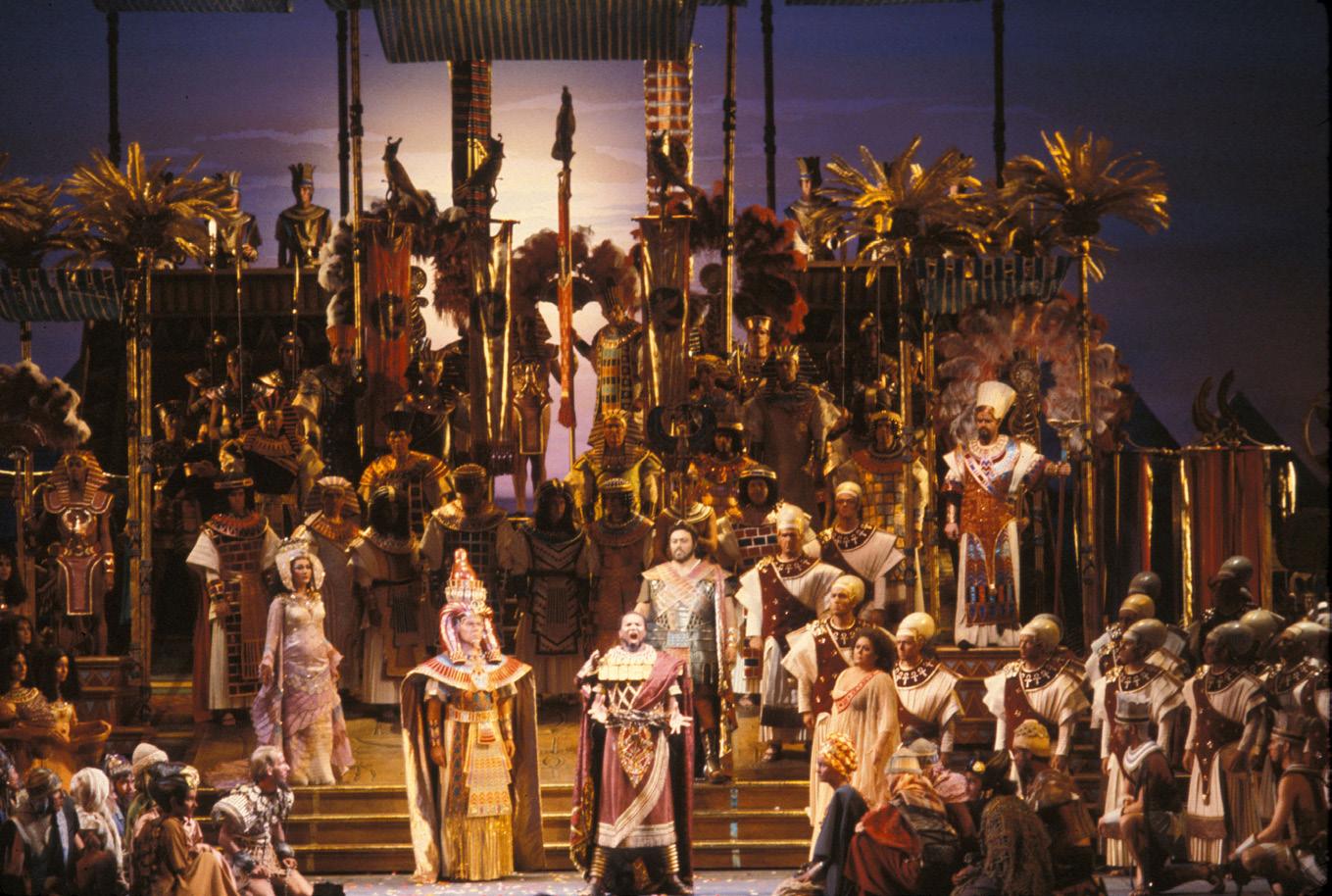
es of the Company gave a performance of Verdi’s work for the ages.
When Simon Estes was a student at the University of Iowa in the early 1960s, he pursued a premed path to become a doctor. Following his heart, he changed majors to vocal music and embarked
18 MAR- APR 2023 wholereviewmag.com
.
overture simon estes honored
on one of the pivotal careers in American music. Through his talent and example, Estes embodied excellence on the concert and opera stage and was instrumental in challenging barriers of racial prejudice in classical music. As an educator and mentor, he continues to help young artists develop their artistry and become leaders in the field.
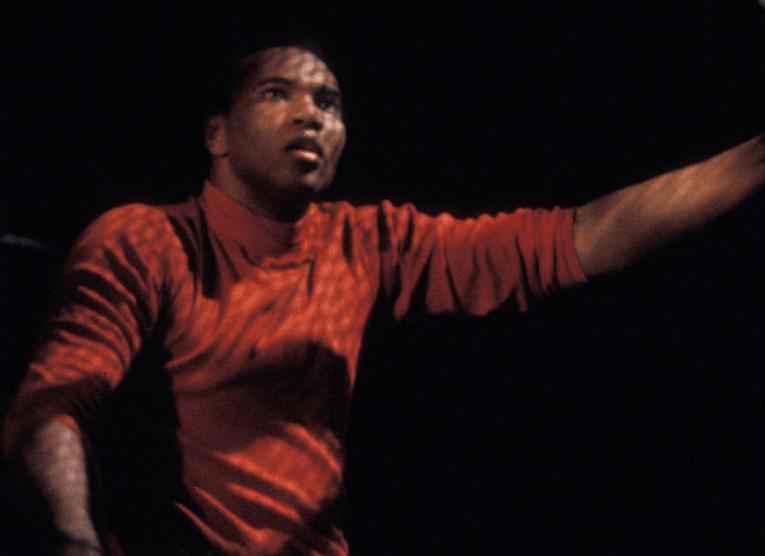
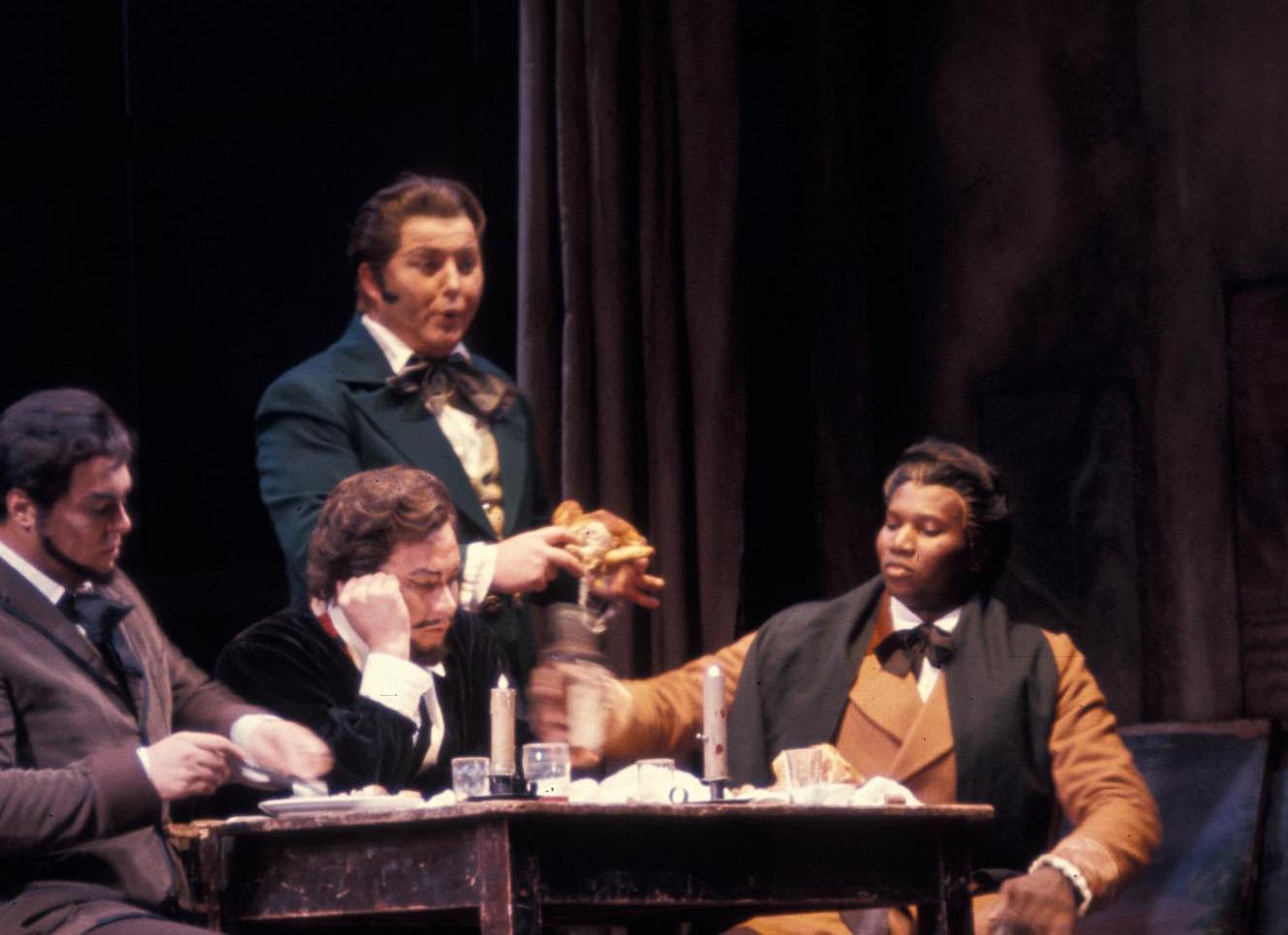
CROSSOVER RECORDS is excited to announce the release of our debut Broadway album with the incredible Kenneth Overton, A Bright Tomorrow. This project sparks a return to his musical theatre roots and features some of his favorites from the Black Broadway cannon.
ON SALE NOW

19 MAR- APR 2023 wholereviewmag.com
(Top Left) Simon Estes' SFO debut- Photo: Margaret Norton/San Francisco Opera, (Bottom Left) Simon Estes as Amonasro (center) in Aida (1981) Photo: Robert Cahen/San Francisco Opera, (Top Left) Simon Estes as Colline (far right) in Puccini's La Boheme
(Top Right) Simon Estes as Carter Jones in Gunther Schuller's The Visitation
simon estes honored overture
Robert Sims and Friends: "Majesty of the Spiritual"
 by Courtney Carey
by Courtney Carey
20 MAR- APR 2023 wholereviewmag.com
overture majesty of the spiritual
It is impossible to talk about African American folk music, and more specifically Negro Spirituals, without bringing up the name Robert Sims. With an impressive bio listing performances in the top venues across the country, Sims has long been a sought-after lyric baritone. It is, perhaps, his desire to preserve and perform spirituals that might well etch his place in the annals of history. There is no greater advocate for the art form. Through his countless concert productions over the years, he has brought spirituals to audiences once unaware of the communicative and expressive qualities of the concert spiritual. He attributes his interest in the spiritual to his former high school music teacher, Dr. Lena McLin. He learned many spirituals while seated next to her as she composed and arranged at the piano, and has featured many of those beautiful melodies in his thoughtful, wellpaced concert programs throughout the years.
Sims' most recent curatorial efforts, aptly titled "Majesty of the Spiritual," paid tribute to composer-arrangers Lena McLin, Roland Carter, and Jacqueline B. Hairston. The events, held at Lincoln Center, The Herbst Theater, and Aurora University between 2019 and 2023, featured up to fourteen singers and four pianists alternating in performances of songs interspersed with tributes and film clips featuring the composers. The concerts were presented in partnership with Noontime Concerts, in association with The Living Heritage Foundation.
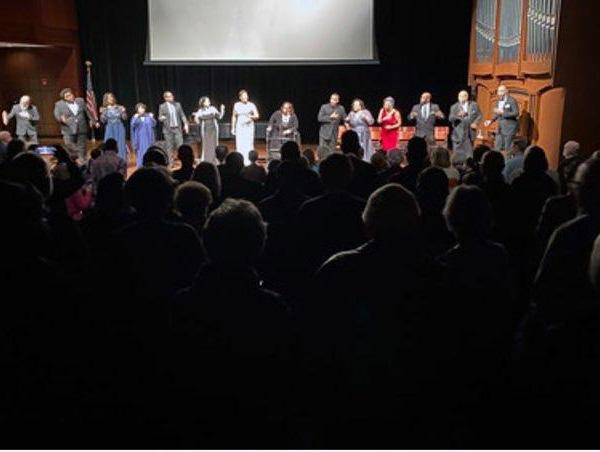
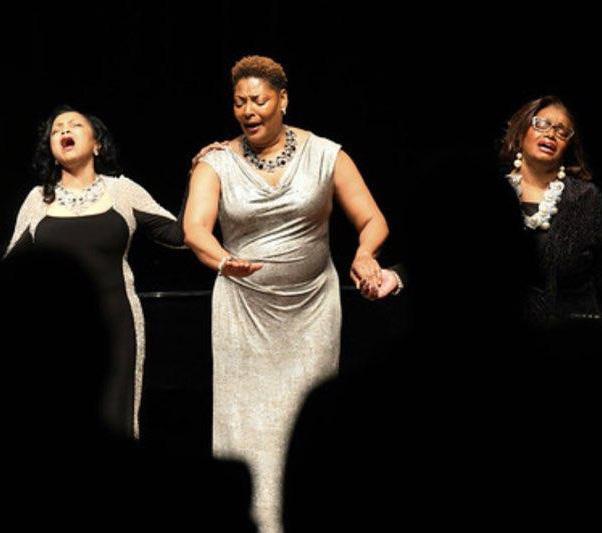
Sims and Noontime Concerts will release "Majesty of the Spiritual" filmed at The Herbst Theater (San Francisco, CA) on Juneteenth.
Details forthcoming.
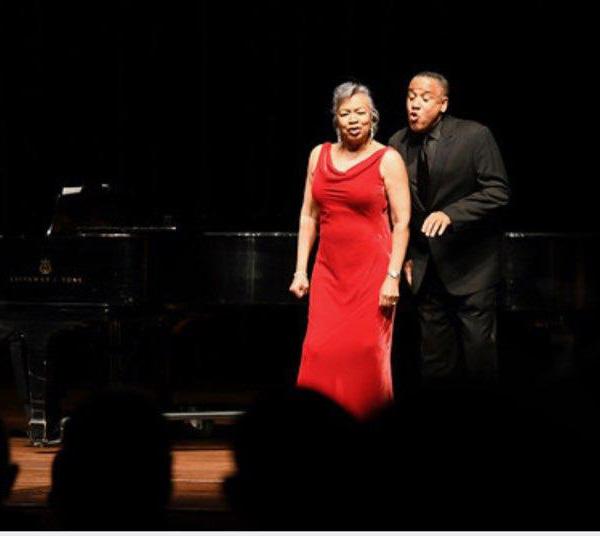
21 MAR- APR 2023 wholereviewmag.com majesty of the spiritual overture
Majesty of the Spiritual, Photos courtesy, Robert Sims
PROBLEM SOLVING:
ADDRESSING THE LEGACY OF RACISM AND MISCHARACTERIZATIONS IN THE STANDARD OPERA CANON
BY COURTNEY CAREY
22 MAR- APR 2023 wholereviewmag.com AMPLIFIED
Introduction
From the moment the conductor mounts the podium, the curtain rises, the lights illuminate the stage, and the rapturous music begins to fill the air. Audiences are swept up and transported to a compelling and fanciful other world, one that could have been conjured up by, perhaps, Glück, Beethoven, Gounod or Stravinsky. These composers, like so many others, have the unique ability to take stories and infuse them with sweeping melodies that lift the humor, pathos and passion from the page and inspire audiences to return time and again to hear more. Opera is bold, grand and thought-provoking, but also at times problematic. Since the early works of Jacopo Peri and Giulio Caccini, opera has been not only a vaunted form of entertainment and escapism, but also a mouthpiece for addressing social and political themes. As time has progressed, so too has our consciousness, causing us to analyze, question and thoughtfully address troublesome ethnic depictions, racist tropes and offensive characterizations that are on full display in such operas as Mozart’s Die Entführung aus dem Serail, Rossini’s L’Italiana in Algeri, Verdi’s Otello and Aida and Puccini’s Madama Butterfly and La Fanciulla del West. As a result, it is incumbent upon opera companies to acknowledge and address the legacy of racism. By so doing, they have the opportunity to offer contemporary audiences productions that are free from the misrepresentations and mischaracterizations that have historically undermined opera’s importance and beauty.
A History of Fascination with the East and Exoticism
By 1782, when Wolfgang Amadeus Mozart’s Die Entführung aus dem Serail premiered at the Burgth-
eater in Vienna, Austria, artistic fascination with exoticism was not a novel idea. Tales of Turkish harems, imprisoned women and Western heroes - so-called seraglio stories - were popular tropes. Mozart’s seraglio story involves the rescue of two European women, Konstanze and her maidservant Blonde, after being abducted by Turkish pirates. Enter Belmonte, the dashing Christian nobleman from the West to save them from the seraglio and the clutches of the barbaric Muslim, Pasha Selim. For all its charm and character, the opera often provokes criticism from modern audiences for reducing slavery, cultural stereotypes and sexual assault to a three-act farce.
How, then, do contemporary directors deal with Western civilization’s cultural misconceptions about the East that are raised throughout the opera? James Robinson found an answer to that question in his inventive and masterful staging of the work at the Houston Grand Opera during its 2001-2002 season: box the characters in and force them to deal with the contradictions. Robinson’s production of Die Entführung aus dem Serail, which premiered six months after the 9/11 terror attacks, moves the action from a 16th century seaside palace to the fabled Orient Express. When asked to explain his decision to change the venue from the seashore to a first-class cabin on a luxury train, he says, “What one needs to understand when exploring the piece is that [the opera] is not just a clash of cultures, it is a misunderstanding of each other.” For example, Osmin is sorely misunderstood. Pedrillo, Belmonte’s servant, makes fun of Osmin and questions his beliefs precisely because they are foreign to him. “That’s why [setting] it on this train, with these different characters and these different situations made sense. On a moving train [the characters] can’t escape, and they are forced to deal with the situations.” In effect, these strangers on a train are forced to bear out their misconceptions, and ultimately, as
23 MAR- APR 2023 wholereviewmag.com
problem solving overture
Robinson notes, “out of misunderstanding comes understanding.”
Similarly, Alison Moritz modernized Die Entführung aus dem Serail in her January 2020 production at Opera Omaha. Her lively staging moves the action to a flashy nightclub called “the Seraglio.” Explaining the decision to change the setting, Moritz says that she and scenic designer Steven Kemp asked themselves, “How can we create a container where we know we are still looking at an exotic environment through a Western lens?” Ultimately, the glamorized, Western-themed films of the 1930’s and 40’s such as Michael Curtiz’s Casablanca provided the inspiration and the lens through which they could view Mozart’s work as a fantastical, fictionalized view of Turkey. Casablanca and other such films notably depict exotic spaces from a Western viewpoint, using an intoxicating environment where a mix of cosmopolitan men and women have to engage and interact. But because the characters are seen as fictitious, they are not taken at face value. The use of this tactic prevents audiences from viewing the opera as naturalistic and realistic, but rather as the light-hearted, comedic opera Mozart wrote.
Another such tale of the romantic rescue of innocent Europeans from barbaric Turks is Gioachino Rossini’s L’Italiana in Algeri. Rossini’s opera, written some 30 years after Mozart’s seraglio story premiered, inverts the story line and gives the maiden the task of rescuing the man she loves. In this fast-paced dramma giocoso, Mustafa, the Bey of Algiers, has grown tired of his wife, Elvira. Wishing to be rid of her, he sends his men to capture a suitable Italian girl to replace her. They seize an Italian ship and its passengers. Their booty includes the firecracker Isabella, whose assertive, sublimely confident and energetic nature enables her to get the best of her bumbling captors in a series of one-ups that makes this opera one of the most sparkling comedies in the active
repertoire. Engrossed by slapstick humor, luxurious oriental garb and vibrant sets, the audience almost forgets that what is unfolding is a woman’s attempt to avoid entrapment in a harem at the hands of Turkish bandits.
As opera moved further into the 19th century and reached the apogee of the bel canto era, composers’ obsession with the East hardly ebbed. By 1847 when Giuseppe Verdi wrote Il Corsaro, his version of fabled bandits and mischief, he had already established himself as one of the world’s most prodigious talents. The composer hardly expressed any real interest in Il Corsaro as its premiere approached, for reasons that are wide ranging. Productions of his operas I Masnadieri and Jerusalem were preoccupying him, pushing his attention farther away from his pirate opera, thus cementing Il Corsaro as a stepchild to other works in the Verdi canon. Il Corsaro, or The Pirate, deals with a far-off Turkish island, harems and slave girls, subjects the inimitable composer did not court often. It is worth noting, however, that he, like Mozart and Rossini before him, found something profoundly exciting in the far-off land of the Ottoman Empire. Bypassing Il Corsaro, there are two prominently performed Verdi operas – Aida and Otello - that give rise to great concerns from modern audiences who see their themes and ethnic depictions as problematic.
Blackface/Whiteface and Equitable Casting
On its face, Verdi’s Aida is a tale of forbidden love set against the backdrop of war. On a deeper level, the opera becomes a conundrum for conductors, directors and singers who grapple with presenting art that is historically and contextually authentic, yet is more sensitive and thoughtful in its representation of ethnic characters than in the past.
24 MAR- APR 2023 wholereviewmag.com
overture problem solving
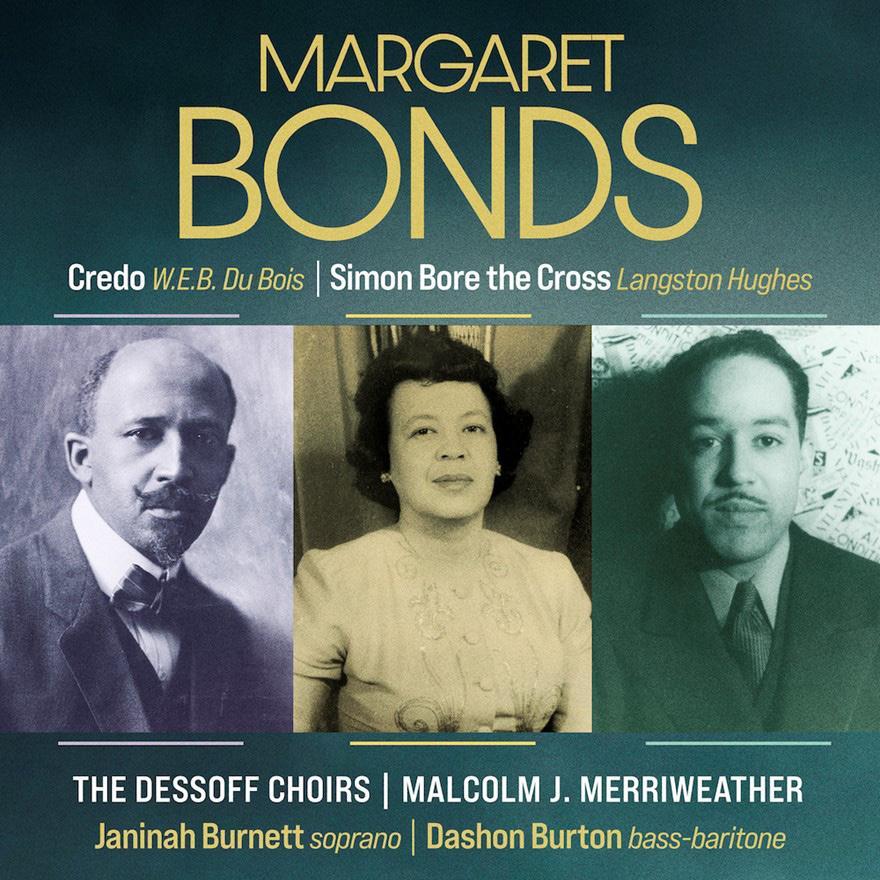



25 MAR- APR 2023 wholereviewmag.com
for purchase and download on all major platforms
Available
It is clear that Aida’s plot pits Egyptians against Ethiopians - fair-skinned versus dark-skinned people. The titular character is of Ethiopian decent and has been predominantly portrayed by white sopranos. Over the years, it has become standard practice to paint white Aidas in darker makeup for dramatic effect, a practice which in recent years has been lambasted and deemed inappropriate across the board, as it hearkens back to the age of blackface. Blackface makeup, which gained popularity in the late 19th century, promoted and contributed to the spread of racist stereotypes. But to many sopranos singing the role of Aida, the use of dark makeup is not an affront to an ethnic group, but rather, demonstrates steadfast resolve to honor the composer’s intentions. For them, it is about realistic and authentic characterization, which is the equal partner to singing. Without one, the other cannot successfully exist.
Throughout the 1960’s and 70’s, the African-American mezzo-soprano Grace Bumbry wore white makeup in her effort to make her character portrayals more plausible. In a 1986 radio interview with Stefan Zucker, Bumbry expressed her opinion on the use of lighter makeup, stating, “I see no reason whatsoever why a Black person should be allowed, given the opportunity, to go onstage in their usual black face.” In other words, she was of the opinion that in order to be believable, one should assume the appearance of the character being played.
Tenor Issachah Savage, one of today’s leading exponents of Radames and Otello, shares Bumbry’s opinion, with the following distinction: “Stage makeup is meant to create what is real for the character. Blackface was intended to over exaggerate, and make a caricature of a Black person. It seems to me that there is a difference between caricature and the visual image of a character.” The acclaimed stage director Francesca Zambello has a different opinion, believing that painting white singers in darker makeup, no matter the role, is unnecessary. “They convey the character through their acting,” she says. With her 2012 production of Aida at the Glimmerglass Festival, she was able to ward off any potential furor by featuring a predominantly Black cast, with Michelle Johnson and Noah Stewart in the lead roles of Aida and Radames respectively. Zambello’s Aida casting brings to the fore another subject that is currently being addressed across the country: equitable casting. Derrell Acon, Vice President of People Operations & Inclusion at Opera Philadelphia (formerly Associate Artistic Director & Chief Impact Officer at Long Beach), offered the following perspective: “When dealing with casting for Aida or Otello, [we] are not only discussing the problematic nature of how the audience is viewing the opera, or the problematic nature of its history, but [we] are also dealing with equity with real people - in the jobs they have - and the ideas in society that [we] are perpetuating about them.” The common
26 MAR- APR 2023 wholereviewmag.com
overture problem solving
“When dealing with casting for Aida or Otello, [we] are not only discussing the problematic nature of how the audience is viewing the opera, or the problematic nature of its history, but [we] are also dealing with equity with real peoplein the jobs they have - and the ideas in society that [we] are perpetuating about them.”
thread among opera companies such as Zambello’s Washington National Opera and Glimmerglass (2011-2022) is sensitivity to the artists involved as well as to the audience. By creating an equitable space and empathy for marginalized groups, they are seemingly able to present art that leaves room for imagination and interpretation.
Thoughtful Solutions
Toward the latter part of Verdi’s career, verismo was emerging as the artistic preference. That is to say, heroic and legendary subjects were becoming passé, and common, everyday subjects were favored. The emergence of realism in opera paved the way for Giacomo Puccini. If Puccini’s Le Villi, Edgar and Manon Lescaut made him the heir apparent to Verdi, then La Boheme, Tosca and Madama Butterfly catapulted him to superstar status.
Puccini’s Madama Butterfly and the less-often performed La Fanciulla del West are the most often criticized for their problematic ethnic depictions. Madama Butterfly’s Cio-Cio San is often made up in yellowface makeup and usually appears in some form of traditional Japanese dress. The tragic heroine in this saga is a 15-year-old who is sold for sex, and through her “childlike” naiveté marries an American soldier who takes full advantage of his purchase and his time in Japan.
Seattle Opera courted controversy during its 2017 run of the opera when General Director Aidan Lang insisted on reinstating two sections of controversial dialogue which Puccini had removed from the final version. The most eyebrow-raising of the changes was including Pinkerton’s use of a racial slur to describe Japanese servants. The artistic team, however, drew the line at yellowface makeup and refrained from altering Armenian soprano Lianna Haroutounian’s appearance. As incendiary as it may seem to include racially charged dialogue in an opera that is full of racist
tropes to begin with, the company used the opera and its outreach programs as an educational tool. Seattle Opera’s media relations manager Kazuko Nomura Gainor and then-director of education and community engagement Barbara Lynn Jamison organized and presented a panel discussion exploring the ramifications of Puccini and his librettist’s prejudices. Producer and director Frank Abe led the panel, which included eight Asian American artists. Public engagement through education and outreach is another way that opera companies are tackling the issues raised by these operas. Francesca Zambello hosted live talks before the curtain rose at Glimmerglass, as do other opera companies across the country.
La Fanciulla del West is another work in which the historical authenticity of the opera’s setting and characterizations poses challenges for opera companies and their directors. La Fanciulla del West, which takes place during the California Gold Rush, can easily play into the racist stereotypes David Belasco, Puccini and his librettists created. However, in Opera Colorado’s most recent production, director Emma Griffin took great care to treat the opera’s two “Indian” characters as a part of the cultural landscape as opposed to placing them as oddities within that landscape. Griffin moves the action from California to Colorado where the characters are, as she describes, “a group of rough-and-tumble miners” who could easily live in a multi-cultural environment. She was adamant that the company not dress any of the characters in Native American garb, or demean the culture in any way by using guttural utterances, which could be viewed as offensive. They also took care to omit racial slurs through the use of carefully vetted surtitles. La Fanciulla del West and other operas like it that call for particular attention to be paid to ethnic characterizations benefit from cultural consultants who are hired to offer insight into speech patterns, movements and dress, and
27 MAR- APR 2023 wholereviewmag.com
problem solving overture
who also help opera companies avoid scandal and cultural misappropriation. Alison Moritz has used cultural consultants in the past, and Opera Company of Canada brought in Richard Lee as a consultant for its 2019 production of Turandot.
Despite the worrisome ethnic depictions found in the operatic canon, there is good news. Opera companies are aware of the cultural shift and recognize that they must address these issues from as many angles as possible. Conscientious directors, thoughtful direction, empathetic singers, and opera companies that promote equity certainly help pave the way to an enjoyable opera experience for everyone involved. Yet with every new production, new issues will inevitably arise. But hopefully, by the time the music stops, the conductor leaves the podium, the lights fade and the curtain falls, the audience will have been swept up and transported to a world that is no less bold, no less grand, but far less problematic.
DictionBuddy is a mobile app that makes learning foreign language rep much easier. We created a library of over 1,400+ audio tracks with native speakers of each language demonstrating proper lyric diction. We record each piece at a normal speed and at a slow speed to help make it easier to learn. In addition, we also provide texts, translations, transliterations, and IPA.


Czech Russian Spanish French German Italian English Latin Polish
This piece originally appeared in Opera America Magazine under the title "A Troubled Inheritance." I have included the original version here to provide a more expansive examination of the subject. Since the publication of the original article Francesca Zambello has retired from the Glimmerglass Festival and Derrell Acon is now Vice President of People Operations and Inclusion for Opera Philadelphia.
With packages starting as low as $24.99/ 3 months, DictionBuddy makes diction
28 MAR- APR 2023
overture problem solving
training accessible to everyone.
LANGUAGES




29 MAR- APR 2023 wholereviewmag.com Full scale Interior Design services specializing in high end residential projects. www.byronrisdon.com info@byronrisdon.com 202-798-1135 BYRON RISDON LLC INTERIOR DESIGN BYRON RISDON PRINCIPAL DESIGNER @byronrisdon Byron Risdon LLC

COVER STORY
YOU COULDN'T WRITE A BETTER SCRIPT
THE MAGIC FLUTE FILM STAR
Morris Robinson reflects on his life's unconventional journey from football to sales to opera to film.
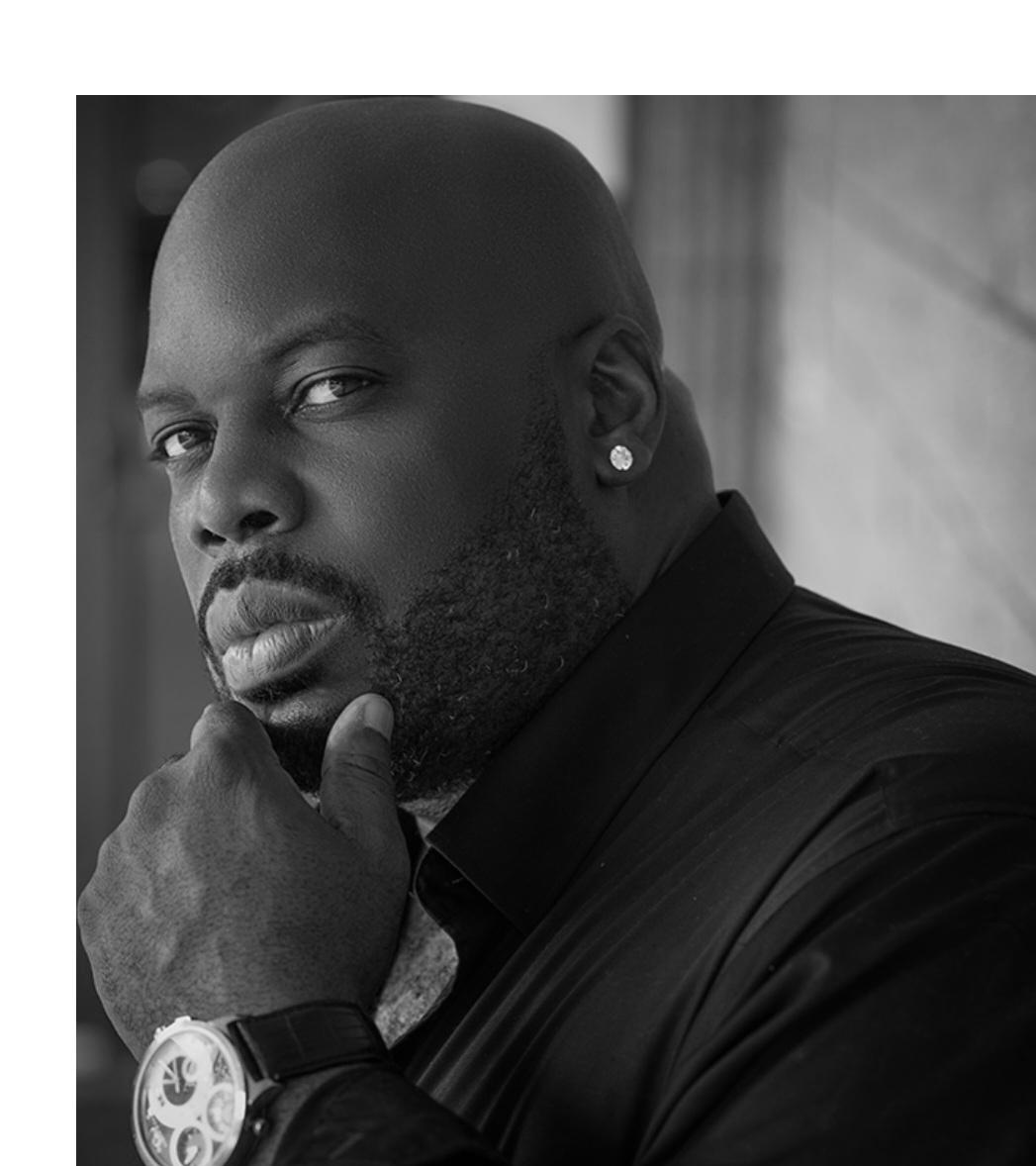 By Liz Colavita
Photographs by Lawrence Brownlee
By Liz Colavita
Photographs by Lawrence Brownlee
The parallels between sport and opera are nothing new for Morris Robinson. He’s a former All-American athlete who transi-
tioned from the football field to the opera stage a bit later than most. And the synchronicity between the two continues, even though the Grammy-winning bass singer is approaching 24 years in opera.
"You couldn't write a better script to win a game like that tonight. "-
7–27 for the third-biggest comeback in postseason history. Quarterback Trevor Lawrence threw three of his four touchdown passes in the second half as the Jags ultimately beat the Chargers 31–30. In a post-game interview, Lawrence told ESPN, “You couldn’t write a better script to win a game like that tonight.”

In January 2023, the Jacksonville Jaguars upset the Los Angeles Chargers in the AFC wild card playoff game. Borrowing their mascot’s stalk-and-ambush approach, the eponymous sports team came back from a halftime score of

32 MAR- APR 2023 wholereviewmag.com
amplified you couldn't write a better script
Trevor Lawrence
Photos: (Left) April
Visuals/Shutterstock; (Right) Shoutfactory
Approaching the March 10 release of producer Christopher Zwickler’s film adaptation of Mozart’s The Magic Flute, Robinson, reflecting on his life’s unconventional journey from football to sales to opera to film, notes, “I didn’t write the script, nor did I plan for it to happen this way. But I’m pretty happy with it.” Always a performer of sorts, Robinson harnessed every transferable skill — from discipline to perseverance and commitment — to work his way from one casting to another, to another, and then another. So perhaps the greater story here, more than that of an athlete turned opera singer, is one of seizing opportunity.


In our conversation, Robinson is quick to give credit to a higher power for his life’s path. Robinson feels a personal relationship with God, and God’s role has not wavered in his journey. The son of a Baptist minister, the singer’s first introduction to music was the church. He has immense gratitude toward God for his gift. And it is a gift that enraptures audiences. Barry Creasy of musicOMH has called Robinson’s voice sublime, sonorous, and golden; the New York Sun’s Fred Kirshnit describes his vocals as having a “rich, resonant depth ... like a warm blanket during a frigid night.”
In addition to thankfulness, there is a sense of responsibility, purpose, and duty. Robinson elaborates. “My gift isn’t a job. It isn’t la-
borious; it is my responsibility. And I owe it to the God who gave me this opportunity and gave me this gift. He did this for a purpose, and I want to make sure I do everything I can to realize that purpose in its entirety, not cheat myself, a higher being, or the world out of what has been gifted me.”

There is also a determination to prove any naysayers wrong. Robinson’s work ethic and drive for excellence go into overdrive when he has a point to prove and a challenge to overcome. As a football player at The Citadel, The Military College of South Carolina, the offensive lineman understood that any day off could be the difference between a tackled quarterback and a game-winning touchdown pass.
And even after 24 years in the opera world, role after role, his job brings on fresh challenges and a new level to reach. “I feel like there’s a group of people out there waiting to finally say, ‘I told you you couldn’t do it.’ There’s always someone saying I couldn’t make it past that level. Whether it’s true or not, I have to make sure that I don’t give them the satisfaction of saying, ‘I told you so.’” Robinson hasn’t let up.
33 MAR- APR 2023 wholereviewmag.com you couldn't write a better script amplified
“I didn’t write the script, nor did I plan for it to happen this way. But I’m pretty happy with it."
God may have set the path in front of Robinson, but the singer is running down that path at nothing short of a head-on sprint. It started at the Boston University Opera Institute, which he felt was the best school for him as an artist with an avant-garde backstory. With the support of Associate Professor Sharon Daniels, and academic nurturing from the staff more broadly, Robinson quickly found his footing in Boston in 1999. What started out as an assignment singing Bluebeard’s Castle in English ultimately led to an audition for the King of Egypt in Aida with the Boston Lyric Opera. The moment Robinson started studying opera, so started his opera career.
“Steve Steiner heard me and then called Stephen Lord, who had me come in and audition for the role of the King,” Robinson notes, with an added snap of the fingers. He emphasizes that this experience would not have happened anywhere else, citing three serendipitous reasons: The affiliation between his program and the Boston Lyric Opera, the fact that Lord had lost his King, and, “[my falling] into their laps.” Most succinctly, he was the right man in the right place at the right time. “You can’t write that script; it’s a perfect setup.”
It is indeed a perfect setup, but the follow-through is arguably the most important part. And every aspect of Robinson’s life has prepared him for showtime. Following his debut role with the Boston Lyric Opera, Robinson received three more roles. And these formative roles, such as the Commendatore in Don Giovanni, have followed him through his career to places like San Francisco, Chicago, and Philadelphia.

Janice Mancini Del Sesto, former General Director of the Boston Lyric Opera, echoed this sentiment of making lemonade out of lemons. While Robinson’s op-
portunities were by no means something sour to make sweet, she reassured him that the key to success was capitalizing on opportunities. And, in a virtuous cycle,
his ability to make good returns on investments resulted in more roles and more opportunities. “Getting into the Honors Program meant they took a gamble on me. And I don’t think anyone worked harder than I did … there’s something that says I can’t afford not to be great.”
34 MAR- APR 2023 wholereviewmag.com amplified you couldn't write a better script
Robinson thrives on a mix of seemingly contradictory provocations. On the one hand, his non-traditional path into opera urges some to underestimate him and doubt his artistic capacities. This, in turn, pushes him to new heights of achievement and greater depths of operatic range. At the same, it is precisely this unconventional background that bolstered his trajectory.
The singer recalled a coaching session for the Los Angeles Philharmonic’s 2021 recording of Gustav Mahler’s Symphony No. 8. “It was difficult to understand harmonically how this was working. There were people close to me that felt like I would never be able to master that, because I didn’t have the training. I didn’t have the familiarity with the style.” Stakes were high, with the debut at the BBC Proms. Robinson raised their
bet and, in the ultimate flex, won a Grammy.
While Robinson remains as driven as when he started over two decades ago, his priorities are starting to shift. For the most part, disproving the cynics has provided ample fuel for the fire, yet Robinson wonders if it artistically hampers his craft and development. “[The chip on my shoulder] does interfere with my capability of being artistically authentic; it doesn’t necessarily lend itself to the artistic beauty and aspects of what one wants to produce at this level.”
And in yet another auspicious moment, Robinson was given an artistic playground in the form of film, more specifically a modern film adaptation of Mozart’s opera The Magic Flute. To some extent, the role of Sarastro was very familiar to Robinson. However, where

35 MAR- APR 2023 wholereviewmag.com you couldn't write a better script amplified
(Left) Morris Robinson as the Commendatore in Don Giovanni; (Above) The Magic Flute film(Wolfe, Banks, Robsinson)
he was used to performing opera live, film allowed him to give the role several interpretations. These interpretations never existed in a vacuum; they evolved with feedback from other actors and the producers. “The real artistry comes, not just from my interpretation and input, but also the eyes and ears of the producers. So, what you see in the final cut might be one of 30 different ways I presented it.”
Mirroring the layers of The Magic Flute’s film adaptation, Robinson was able to add dimension to the character of Sarastro that’s difficult to do in the standard
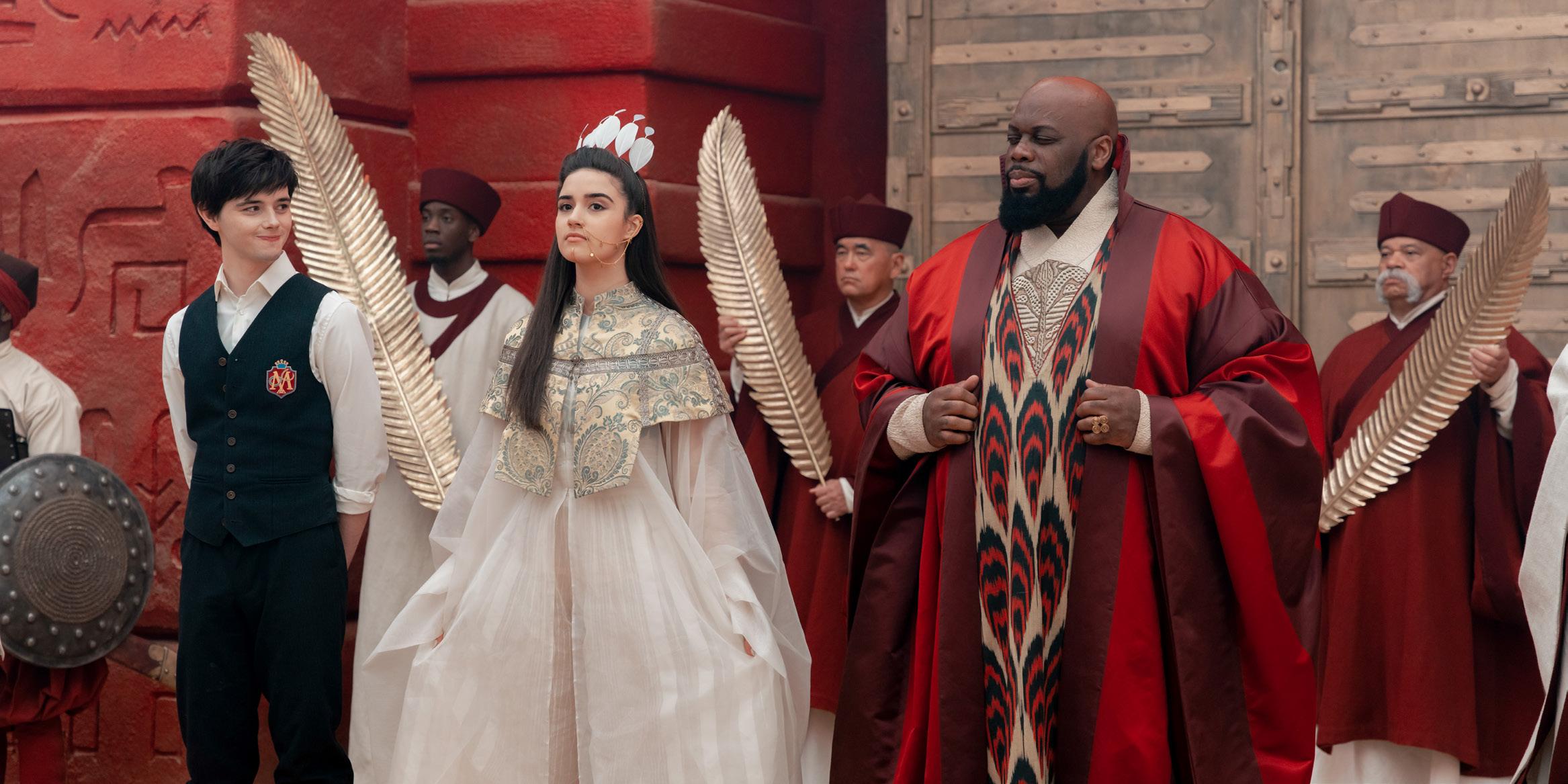
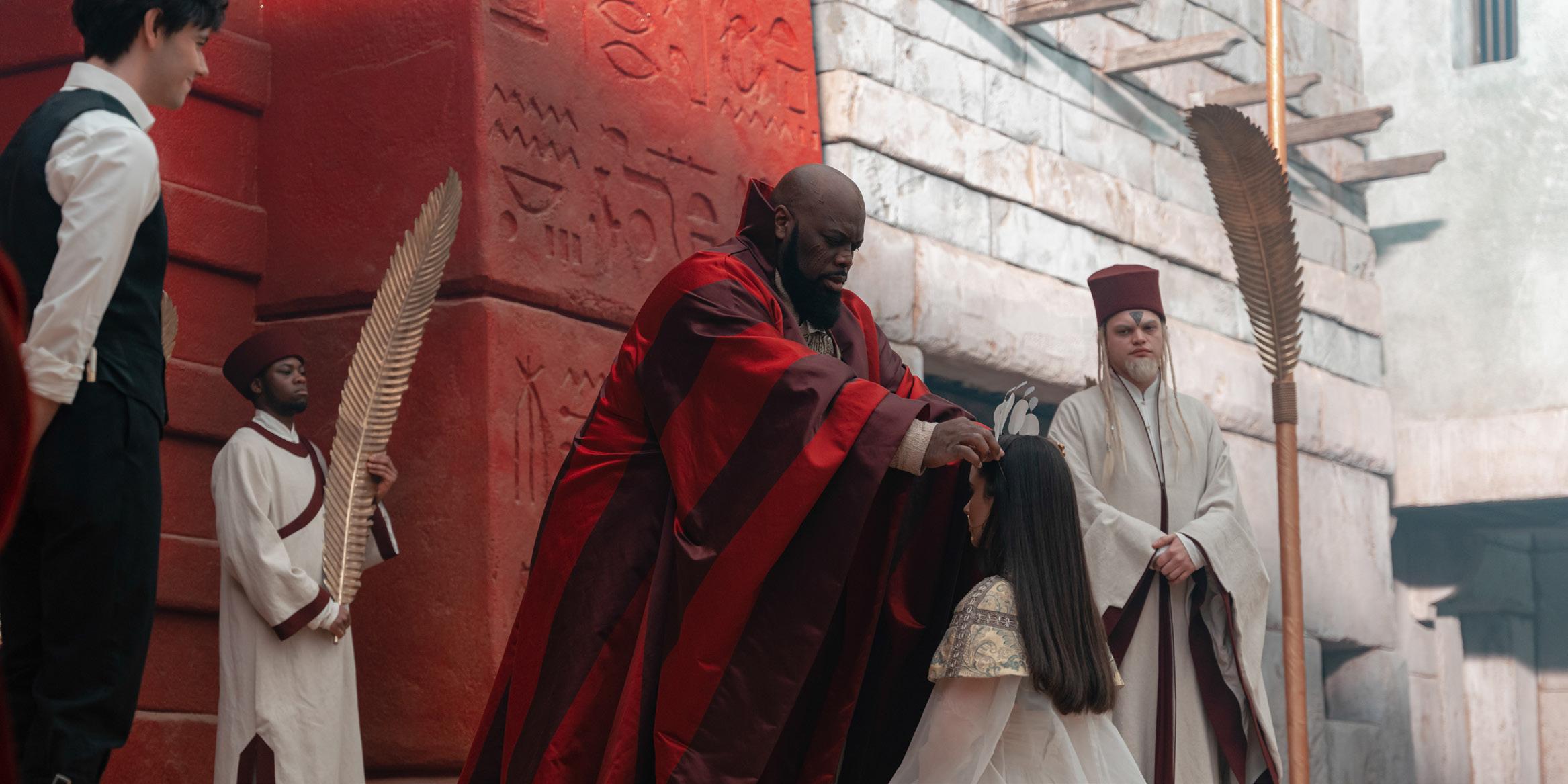
opera format. No stranger to King/Father/God roles, he was able to portray Sarastro the human and expand his own artistic range.
While Robinson would like to do more films in the future, he also hopes that this modern take on an over200-year-old opera will expand opportunities for performers. “The movie market is missing a lot. [Opera performers] are paid actors … and I would hope that opera singers get an opportunity to expand their horizons and show that we’re versatile.”
36 MAR- APR 2023 wholereviewmag.com amplified you couldn't write a better script
Much as Robinson wishes the film will pave the way for performers working across mediums, he’s also optimistic it will be a gateway for a broader audience to engage with opera. Thinking about what Zwickler’s The Magic Flute could do for a new generation, Robinson recounts watching Amadeus in 11th grade and thinking, “This Mozart guy is really cool!” Almost as if it were divine providence, F. Murray Abraham, an actor who got his big break in 1984 for his portrayal of Antonio Salieri in Amadeus, joins Robinson on screen in The Magic Flute
Amadeus was how he fell in love Mozart. “I hope that [The Magic Flute] encourages that same type of infectious admiration.” Robinson wants this movie to
spur audiences to learn more about the original format — the way Mozart imagined it, while also appreciating the brilliant characteristics afforded in the film version. “These storylines that were told hundreds of years ago are still relevant today.”
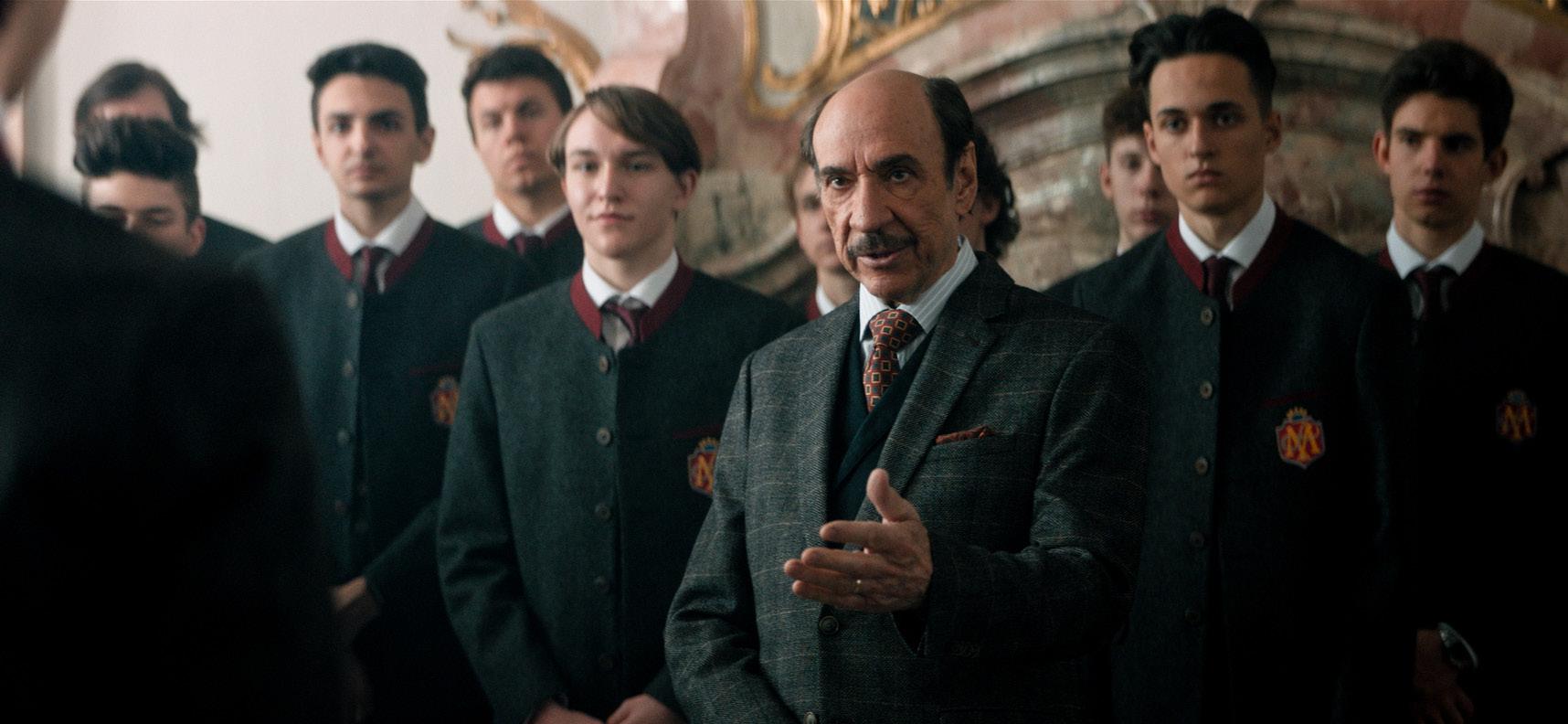
As for what follows in Robinson’s storyline, the singer is keen on doing more film and pushing the bounds of his artistic capacities. “I want opportunities to do more.” He remains dedicated to what comes next. You couldn’t write a better script, and that is what makes it so special.

Morris Robinson is considered one the most interesting and sought after basses performing today.
An Atlanta native, Mr. Robinson is a graduate of The Citadel and received his musical training from the Boston University Opera Institute and as a member of the prestigious Metropolitan Opera’ Lindemann Young Artist Program. visit www.morrisrobinson.com for bio and performance schedule.
The Magic Flute is now playing in US theaters.
37 MAR- APR 2023 wholereviewmag.com you couldn't write a better script amplified
(Above) F. Murray Abraham; Morris Robinson Credit: Shoutfactory
A CALL FOR UNDERSTANDING AND INCLUSION
by Courtney Carey
The proliferation of anti-Asian speech during the coronavirus pandemic gave rise to the now soaring national crisis: anti-Asian racism. According to the Center for the Study of Hate and Extremism, crimes against Asians in America
rose 339 percent in 2021. Two years later, according to the Federal Bureau of Investigation, major U.S. cities reported a staggering number of incidents of violence perpetuated against people of Asian descent. Organizations like Stop AAPI (Asian Americans and Pacific

Islanders) Hate, and the Anti-Defamation League have lobbied congress to speak out against all forms of Anti-Asian bias.
Allyship in the effort to stop anti-Asian hate extends beyond the House of Representatives and into the opera industry. The Asian Opera
38 MAR- APR 2023 wholereviewmag.com
amplified a call for understanding and inclusion
Alliance, comprised of Asian-identifying opera singers and administrators, does its part to encourage equity and inclusion across the board. They also work in tandem with opera companies, consulting general directors, stage directors, et al., helping them avoid the perpetuation of harmful stereotypes. On July 21, 2021, the Asian Opera Alliance penned an open letter to every General Director of American opera companies advocating for equity in the opera industry. That outreach does not stop with the Alliance. There is a wellspring of new opera projects created to quell anti-Asian sentiment and address problematic tropes in the standard operatic repertoire. The Asian Opera Alliance's open letter is a call to action, and White Snake Projects upcoming live stream events, Fractured Mosaics, are a thoughtful answer as the industry seeks ways to create more empathetic, inclusive, equitable art.
ASIAN OPERA ALLIANCE- AN OPEN LETTER
Dear Colleagues in Opera,
We write to you as members of the Asian Opera Alliance (AOA), regarding our concerns with Asian representation within our industry. As Asians working in opera, we come from a vast array of cultural experiences. Some of us are fifth-generation Americans; some still live across the Asian continent and commute to the United States to work. Our communities include those who are biracial and those who are multilingual; we have different skin tones and hair textures. We do not all think, feel, look, or act alike, but we stand together proudly and in solidarity as Asians working in America.
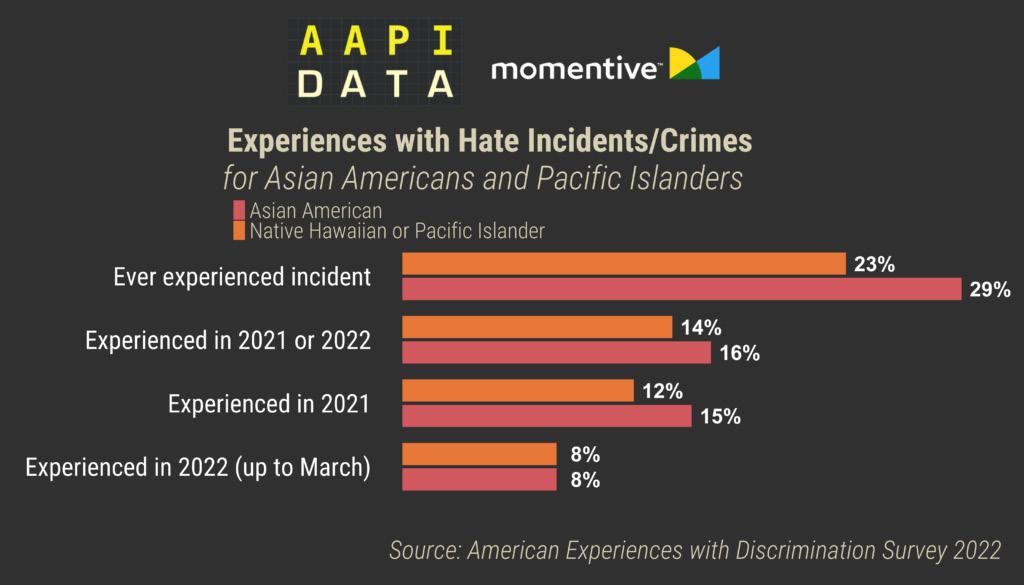
We have seen our industry change drastically in recent months, thanks in great part to the hard work of the Black Opera Alliance (BOA). We are inspired by all they have done to make companies aware of anti-Black racism in opera, to work toward rooting out the implicit biases that pervade our business and shape our seasons. We acknowledge that, thanks to
their contributions, we are now able to make our voices heard. We thank them for their tireless advocacy for all people of color.
Inspired largely by the BOA, we have come together to form the AOA to assert our voices as Asian-identified opera professionals, to stake a claim for our and others’ posterity, and also to establish a collective resource for companies eager to implement changes. As the opera industry makes strides in diversity, equity, and inclusion (DEI) initiatives, we implore you—our employees, colleagues, and collaborators— to invest time, energy, and funds into developing strategies to make opera more equitable for and respectful of artists and communities of Asian descent. In the past year, there was a 167 percent rise in hatecrimes perpetrated against Asians in America. The United States has a storied history of anti-Asian xenophobia, which might lay dormant for decades, only to rear its head at the slightest provocation. Widespread misinformation about the coronavirus pandemic cultivated a new strain of anti-Asian vitriol, which underwrote a surge in violence against Asians. While supporting Asians may be fashionable in the present moment, the root of the violence is painfully ingrained in our nation’s history, and it per-
39 MAR- APR 2023 wholereviewmag.com
a call for understanding and inclusion amplified
Source: American Experiences with Discrimination Survey 2022
sists in our perpetual Othering.
Because Asians are seen as Other, we are too often relegated to small, inconsequential roles; the larger roles we receive, often because of our ethnicity and appearance, are frequently tokenizing and stereotypical. Due to this lack of representation, we struggle to find role models in our industry who not only look like us but also enjoy the success of household names like Leontyne Price, Marilyn Horne, Rolando Villazón, and others. Until we have a regular stage presence, we will still be considered Other. We need the industry to normalize and value our presence and what we bring to various roles—onstage, in administration, and in the boardroom, audience, and beyond.
So, we come to you as colleagues, hoping to work in coalition to make the opera industry more equitable— for Asians, other people of color, and all members of marginalized groups. Our experiences as Asian-identified professionals within this industry provide us with firsthand knowledge of how exclusionary and tokenizing the opera world can be; however, our experiences also enable us to see problems clearly, to name them, and to brainstorm concrete and creative solutions. We envision this letter as a call to collaborative action, which is to say that we do not expect companies and administrators to do this difficult work alone. We are prepared—and excited!—to roll up our sleeves alongside you.
With this in mind, we have identified several points of intervention, items that we can address together to combat institutional racism, tokenization, and the dearth of Asian representation within the opera industry.
✓ CAST US. Strive for better representation by hiring Asians for both Asian and non-Asian-specified roles of all sizes onstage. Normalize and value our role as interpreters of both edgy new works, and the operatic canon. Until we regularly become a part of your seasons, performing in roles of all sizes, we will
be relegated as “other.”
✓ INCLUDE US. Normalize seeing Asian people at every level of production. Administrative and artistic positions. Seek out Asian donors and board members. Invite us into your DEI initiatives.
✓ PURSUE US. Dedicate resources seeking out Asian talent and mounting new and contemporary works that uplift Asian composers, stories, and voices, or that reimagine established works.
✓ CONSULT US. Madama Butterfly, for example, is the quintessential example of an operatic masterwork that perpetuates harmful stereotypes; however, as the opera world grapples with issues related to racial justice and anti-Asian hate, the solution cannot be to excise Madama Butterfly from our repertoires. In effect, this eradicates two of the few starring roles for Asian women, roles that in the past have gone to non-Asian women in yellowface. When you produce Butterfly, we recommend identity-conscious hiring practices: hire Asian singers, creatives, educators, etc., to bring this masterpiece to life with the care it deserves. Companies must also be aware, though, that hiring Asian singers to portray Asian-specified characters can lead to pigeon-holing and tokenization. The best way to circumvent this is to make a conscious decision to cast the same artists for non-Asian-specified roles in future seasons.
We hope that you will reflect on the community-wide call for equitable hiring in opera and we look forward to working with and serving as a resource.
All best, Asian Opera Alliance
40 MAR- APR 2023 wholereviewmag.com
amplified a call for understanding and inclusion


41 MAR- APR 2023 wholereviewmag.com Amelia Rose Jewelry 707.595.0811 • www.ameliarosejewelry.com Wholesale Inquiries West Coast Showroom Agency Showroom @ The Cooper Building • 860 S. Los Angeles St. #214 • Los Angeles, CA 90014 Phone: 213-624-3629 • agencystacy@gmail.com East Coast Showroom Susan & Company, LLC • 16 West 36th Street • New York, NY 10018 Phone: 212-502-0960 • susan@susan-company.com
Cerise Jacobs and her activist opera company, White Snake Projects (WSP), present the world premiere of Fractured Mosaics, an operatic response to anti-Asian racism (March 30; April 1 & 3). Comprising four scenes – bound together by musical interludes – of Asian Americans establishing themselves in the United States, Fractured Mosaics features music by Nilo Alcala, Randall Eng, Benjamin Kono, and Liliya Ugay, and texts by their writing partners – Deepali Gupta, Monique Truong, Cerise Lim Jacobs, and Sokunthary Svay. Reflecting WSP’s continuing commitment to the live, socially distant streaming performance model it developed with such success in the early stages of the pandemic, Fractured Mosaics will be presented in three online performances, facilitated by WSP’s new invention, the software plug-in Tutti Remote, which allows live, synchronous performance from remote locations through the internet.
Underlying the theme of Fractured Mosaics is that
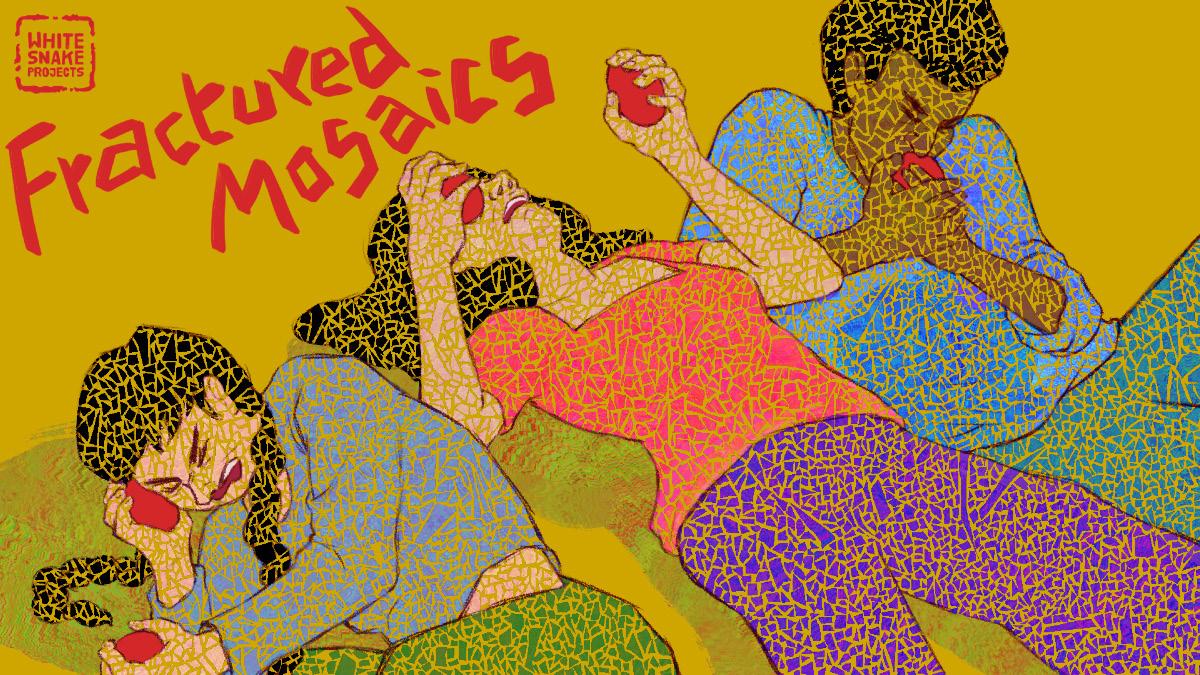
even the term “Asian American” is a social and political construct that completely misses the kaleidoscope of cultures and politics of the 20 different ethnic groups that are encompassed under that umbrella and are geographically spread over more than half the land mass of the Earth. Inevitably, this large and dislocated mosaic of a population is often fractured; the production expresses the conviction that when it comes together it can nevertheless form something beautiful. A versatile four-member cast embodies the characters in all four scenes: soprano Angela Yam, mezzo-soprano Chihiro Asano, tenor Ziwen Xiang and baritone Junhan Choi. They are led by Music Director Tian Hui Ng and Stage Director Laine Rettmer, with projections designed by Pamela Hersch.
Composer/librettist teamNilo Alcala and Deepali Gupta have collaborated on a scene titled "Banana Ketchup." The story concerns Simon, a young medical student of Filipino descent who meets his biological
42 MAR- APR 2023 wholereviewmag.com
amplified fractured mosaics
from Louise Barder 21 C Media Group
mother for the first time and bonds with her over a home-made bottle of banana ketchup, the quintessential Filipino condiment. Randall Eng and Monique Truong created “Norfolk,” in which a Chinese American physician muses on his younger self growing up in Norfolk, Virginia when it was rare to see Asian Americans except in restaurants and laundries. Ben Kono and Cerise Lim Jacobs contributed “Music Box Bird,” which tells the story of an Asian American woman discovering, through the metaphor of two songbirds, her inner power to overcome her restrictive upbringing and free herself. Finally, Liliya Ugay and Sokunthary Svay’s work, “We Meet by the Water,” concerns a daughter in New York City speaking with her mother in Cambodia through the water that separates them and will soon overcome the mother's village; the piece additionally reflects on the impact of climate change on families around the world. Connecting the four scenes are Interludes written and performed by jason chu. A talkback with the singers and creatives follows each performance.
March 30; April 1 & 3
Live Online
Fractured Mosaics
• Banana Ketchup (Nilo Alcala/Deepali Gupta)
• Norfolk (Randall Eng/Monique Truong)
• Music Box Bird (Benjamin Kono/Cerise Lim Jacobs)
• We Meet by the Water (Liliya Ugay/Sokunthary Svay)
• Interludes (jason chu)
Talkback with singers and creatives following the performances
About White Snake Projects
Tickets for Fractured Mosaics are pay what you can, starting at $0. Audience members should feel free to come as a guest of White Snake Projects, but for those able to pay, the suggested ticket prices reflect the work to deliver a fully produced, live opera experience online. Suggested ticket prices are $25, $55, $90, and $150, and tickets are available here
White Snake Projects (WSP) is an activist opera company making mission-driven work that unites art making with civic practice. It envisions a world where the power of opera expands the collective understanding of community and transforms lives through creative storytelling. Among the company’s most recent efforts, the live digital productions of the Pandemic Trilogy: Alice in the Pandemic addressed the disproportionate strain of COVID-19 on communities of color and essential workers; Death by Life explored long-term incarceration and institutionalized racism; and A Survivor’s Odyssey dealt with the ongoing crisis of sexual and intimate partner violence. Likewise, last fall’s mainstage production of Cosmic Cowboy meditated on both the power of human imagination and the consequences of our colonizing impulse. A critical element in the exploration of these themes is the establishment of authentic connections with thought leaders in social justice to ensure that the company’s creative work lives in an ecosystem of activism. WSP sees opera not just as performance, but as performance with purpose, a vibrant and vital art form that is also a champion of change.

43 MAR- APR 2023 wholereviewmag.com
fractured mosaics amplified
SPOTLIGHT PROJECT
In the Fall of 2020, Liz Colavita wrote a piece for The Whole Review entitled Shifting Paradigms about Kelly Hall-Tompkins' pioneering organization Music Kitchen- Food for the Soul and its mission to present concerts by top-tier classical musicians in homeless shelters. In addition to shedding light on Tompkins' mission, Colavita's piece also highlighted the premiere of Forgotten Voices a composite song cycle written by top emerging and established composers with text created by homeless-shelter participants set to music. She presented the work in a concert last year at Carnegie Hall, and recently announced the release of the Forgotten Voices album.
The Avie Records produced disc featuring works by 15 award-winning composers—Courtney Bryan, Jon Grier, Kelly Hall-Tompkins, Gabriel Kahane, James Lee III, Beata Moon, Paul Moravec, Angélica Negrón, Kevin Puts, Steve Sandberg, Kamala Sankaram, Jeff Scott, Carlos Simon, Errollyn Wallen, and Ellen Taaffe Zwilich- is available on Apple Music and Spotify. The performers include Allison Charney, soprano; Adrienne Danrich, soprano; Jesse Blumberg, baritone; Mark Risinger, bass, Kelly Hall-Tompkins, violin; Ling Ling Huang, violin, Andrew Gonzalez, viola, Alexis Gerlach, cello; Peter Seidenberg, cello and John-Paul Norpoth, bass.
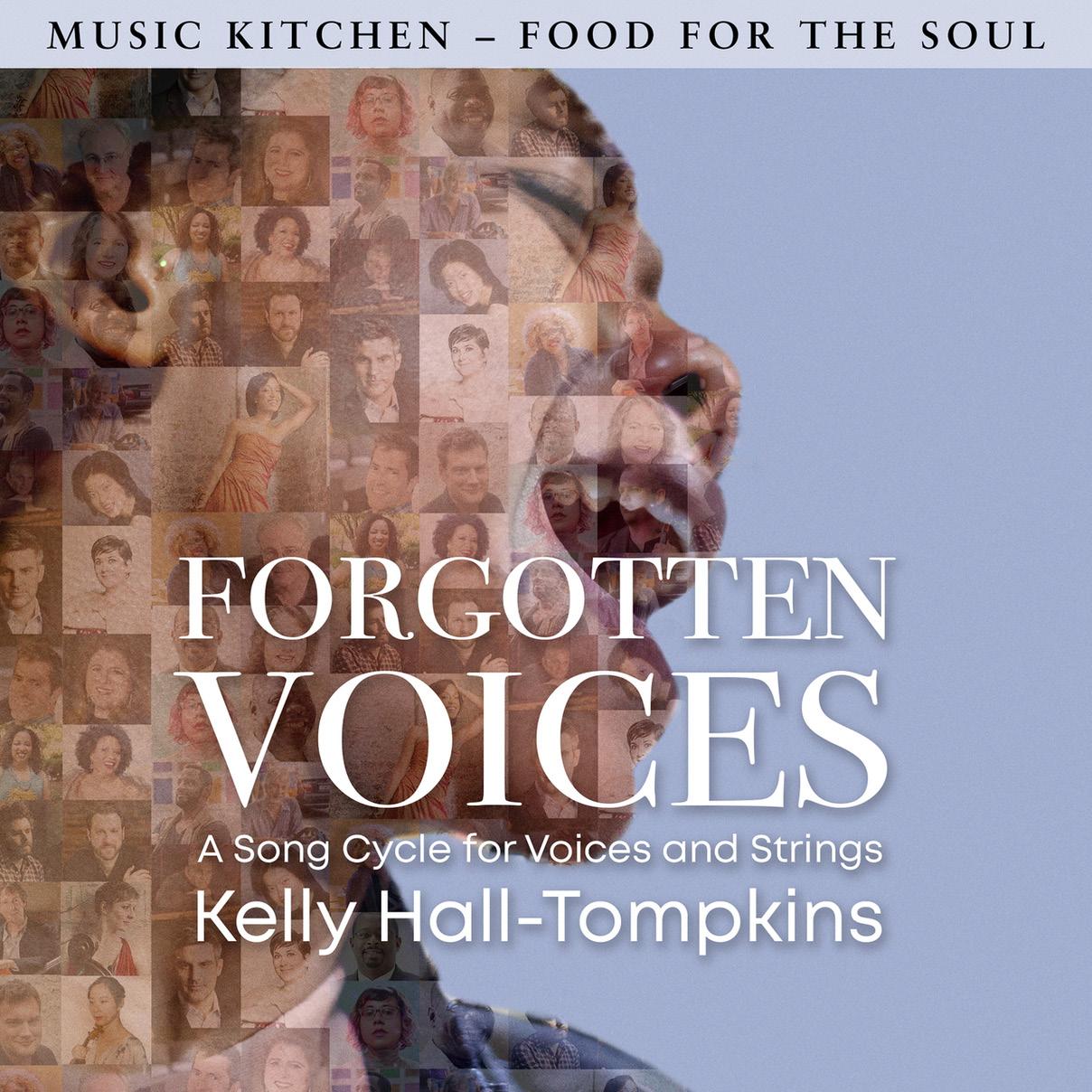
44 MAR- APR 2023 wholereviewmag.com in tempo spotlight IN TEMPO
Forgotten Voices: A Song Cycle for Voices and Strings; Avie Records

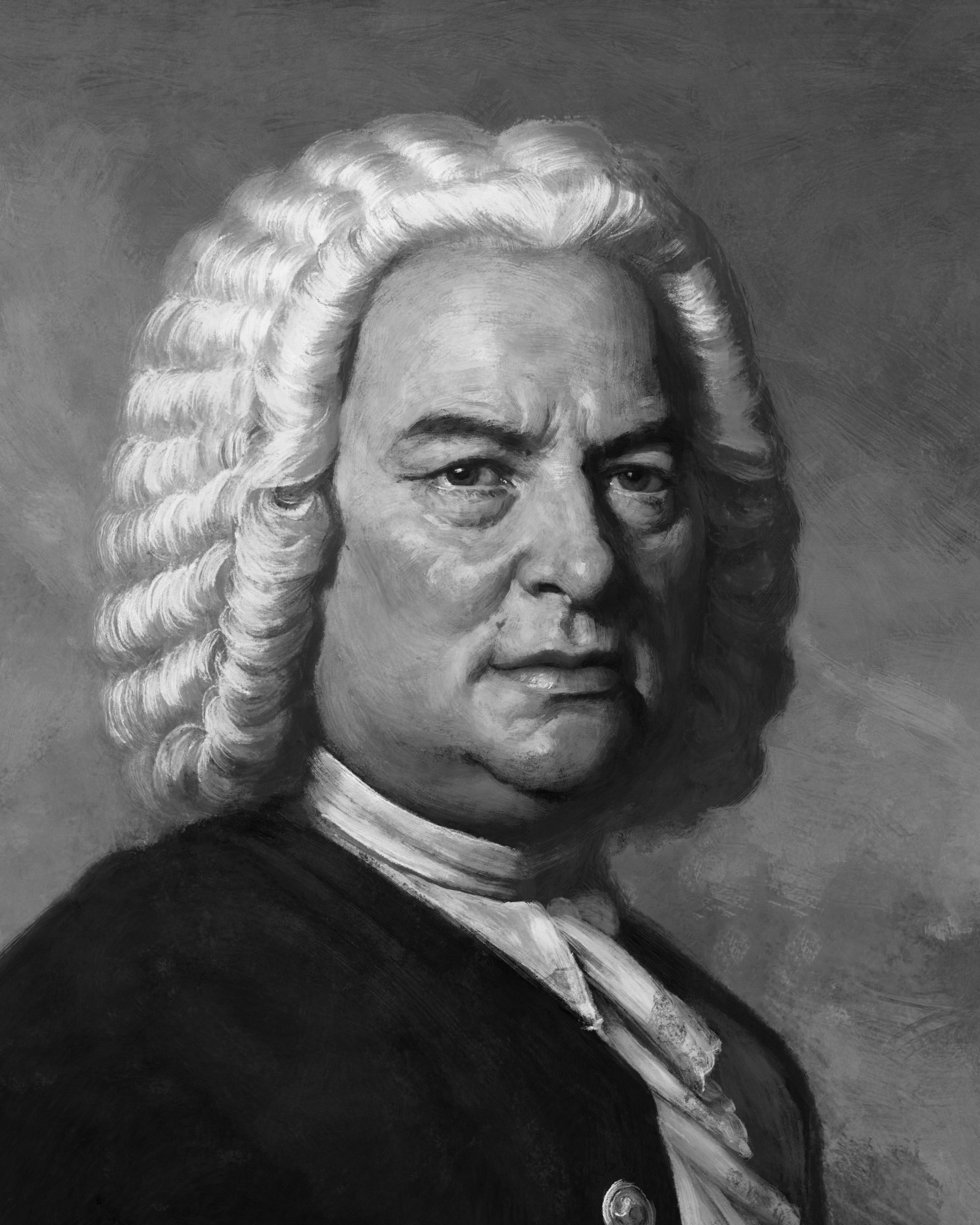
46 MAR- APR 2023 wholereviewmag.com wholereviewmag.com Apple Music Goes Classical SPOTLIGHT TECH in tempo spotlight
Apple has announced Apple Music Classical, a brandnew standalone app designed specifically for classical music. Apple Music Classical makes it quick and easy to find any recording in the world’s largest classical music catalog with fully optimized search, and listeners can enjoy the highest audio quality available and experience many classical favorites in a whole new way with immersive spatial audio.
Apple Music Classical touts its new service as the ultimate classical experience with hundreds of curated playlists, thousands of exclusive albums, insightful composer biographies, deep-dive guides for many key works, intuitive browsing features and much more.

Apple Music Classical will launch later this month and Apple Music
AVAILABILITY
Apple Music Classical will be launching on March 28th and is available for pre-order now.
subscribers will be able to download and enjoy the Apple Music Classical app as part of their existing subscription at no additional cost. Apple is working closely with some of the most prolific classical music artists and renowned classical music institutions in the world to offer Apple Music Classical listeners new, unique and exclusive content and recordings at launch and beyond.
• Requires an Apple Music subscription (Individual, Student, Family or Apple One). Not available with the Apple Music Voice Plan.
• Apple Music Classical is available for all iPhone models running iOS 15.4 or later.
• Apple Music Classical for Android is coming soon.
• To listen to music on Apple Music Classical, you must have an internet connection.
47 MAR- APR 2023 wholereviewmag.com
spotlight in tempo
Images courtesy of Apple & 21 C Media Group
SPOTLIGHT ARTIST
J'NAI BRIDGES
American Masters and Firelight Media have announced the second season of the documentary short series In the Making. The new season focuses on nine artists across a variety of disciplines, whose work explores and influences American culture today. Tony Award–winning actress and singer Audra McDonald hosts the broadcast premiere of American Masters: In the Making, which features two films focused on two barrier–breaking musicians: opera singer J’Nai Bridges and country artist Rissi Palmer.
In J’Nai Bridges Unamplified, directed by Christine Turner, the critically acclaimed and Grammy–winning opera singer J’Nai Bridges takes the stage in A Knee on the Neck, a choral tribute to George Floyd. Bridges has garnered praise for her portrayals of two of opera's most coveted femme fatales, Carmen (in Bizet's Carmen) and Dalila (in Saint Saen's Samson et Dalila). During the pandemic she became recognized as an outspoken advocate for diversity and inclusion in the arts.
The broadcast premieres on Friday, March 24 at 9 p.m. ET (check local listings) on PBS.

48 MAR- APR 2023 wholereviewmag.com
PBS SPECIAL
in tempo spotlight
Photo: Freddie Collier Photography
SPOTLIGHT NEW MUSIC
In case you don't live in Chicago and couldn't catch the Lyric Opera’s sold-out run of the world premiere of “The Factotum” at the Harris Theater, here’s a bit of good news: the Lyric plans to release a film version of the show for free on its YouTube channel in April.

According to an announcement, the film will be a project by Endangered Peace Productions in association with JJE Productions by Chicago filmmaker Raphael Nash. It will also include behind-
the-scenes content, including interviews with the cast and the creative team. Created by Grammy Award-winning baritone Will Liverman, DJ King Rico and Rajendra Ramoon Maharaj, the opera is loosely based on Gioachino Rossini’s “The Barber of Seville.” The opera, which was commissioned by the Lyric Opera of Chicago and the Houston Grand Opera, is set in a Black barbershop on Chicago’s South Side. The opera was a smash hit, and left opera-goers wanting more.
The Houston Grand Opera, Portland Opera and Washington National Opera are all slated to put on “The Factotum” in future seasons.
49 MAR- APR 2023 wholereviewmag.com spotlight in tempo
Photo: Cory Weaver/Lyric Opera of Chicago
by Courtney Carey
Thanks to "CBS Mornings," over the past four months, I have saved $453 and rid the planet of 216 pounds of CO2e. How? They introduced me to the mobile app designed to fight food waste called Too Good To Go. Quite early one morning, I heard one of the show's hosts talking about an app that connects customers to restaurants and stores that have a surplus of unsold food. After downloading the app customers can then purchase whatever food the café, grocery store or restaurant considers surplus-without being able to choose- at a significantly reduced price. Essentially, this is food that would have been thrown away at the end of the business day. Food waste is a global problem that adversely affects the environment. According to its 2021 Global Impact Report, Too Good To Go claims that food waste is responsible for 10% of all greenhouse gas emissions. It is hard to imagine that 2.8 billion tons of food is wasted every year. Sadly, according to the stats, it is true. Too Good Too Go is doing its part to cut that number down one surprise bag at a time. More about those bags later. Thanks to its popularity in Europe, the company expanded
to the United States of America in 2020, establishing a presence in thirteen major cities, including Austin, Baltimore, Boston, Chicago, Los Angeles, Miami, New York (and NY Metro area), Philadelphia, Portland (both Maine and Washington), Providence, San Francisco, Seattle, and Washington D.C.
In addition to helping our environment, this app is a traveling singer's dream come true. If you are on a gig in Chicago and are on a budget, you can download the app (available for Android and iOS), find a popular restaurant, and purchase a full meal for nearly half the original price. It is 100% free to download the app. You only pay for the discounted Surprise Bags you purchase. For your information, most of the food from grocery stores and restaurants is labeled at the "best by" mark, indicating when a product will be of the best flavor or quality, not a purchase or safety date. What is the takeaway? This app is brilliant. Download it immediately, as I did, and become one of the millions of food warriors fighting to save food that is simply 'Too Good to Go.'

50 MAR- APR 2023 wholereviewmag.com FOOD
HOW IT WORKS WHAT YOU GET
1. Download the App

GROCERY BAG- These bags run the gamut, and often include non-perishable items, canned foods, fruits, and vegetables. There is an icon on the reservation page that indicates what type of food will come in your bag, i.e. produce, breads & pastries, groceries.
2. Open the app and search for Surprise Bags of food from restaurants and shops near you.

3. Choose a Surprise Bag from the Discover page, reserve it and confirm your purchase. Head to the shop at the given pick-up time to collect.
MEAL BAG- Meal bags are great because they might include whole dishes! Don't be surprised, however, if your bag just includes side portions. What you get depends totally on what is available.
SURPRISE BAG- A s the name suggests, it's a surprise! Depending on the store, your surprise bag could be filled with breads, pastries, muffins, bagels, croissants, quiches, and/or sandwiches.
4. Take your food to go and enjoy. You've just saved a meal from going to waste and done something good for the planet!

Thank you!
YOU JUST SAVED A MEAL FROM BEING WASTED
MIXED SURPRISE BAG- The mixed surprise bags are fabulous! They come with a variety of groceries and prepared food from the store's deli or buffet. These items could be can tuna, a dozen of eggs, and a ham and cheese sandwich on a croissant from the deli counter.
* A surprise bag can indeed be a "mixed bag" if you know what I mean. Sometimes the bags will include a bunch of random ingredients you're left trying to figure out how to use. So, I gave myself and the team a challenge. What could we make with the bags of ingredients? I think we came up with some pretty good stuff. Turn the page!
51 MAR- APR 2023 wholereviewmag.com
The 11th-century English creation called Poor Man's Pudding is a far cry from the decadent, custard soaked dessert we enjoy today. Back then the English used stale bread soaked in hot water with a sugar and spice mixture to make a pudding-like dessert. It was not until the 13th
USE DAY OLD BREAD! Day old bread is ideal for making bread pudding. After a day or two, bread loses some of its moisture, making it a great sponge to soak up all of that delicious custard.
century that the recipe began to include eggs, milk, and a type of fat to soak the bread. Back then, the dessert was known as Bread and Butter Pudding before being shortened to Bread Pudding.

52 MAR- APR 2023 wholereviewmag.com food recipe
Coconut & Almond Crunch Bread Pudding
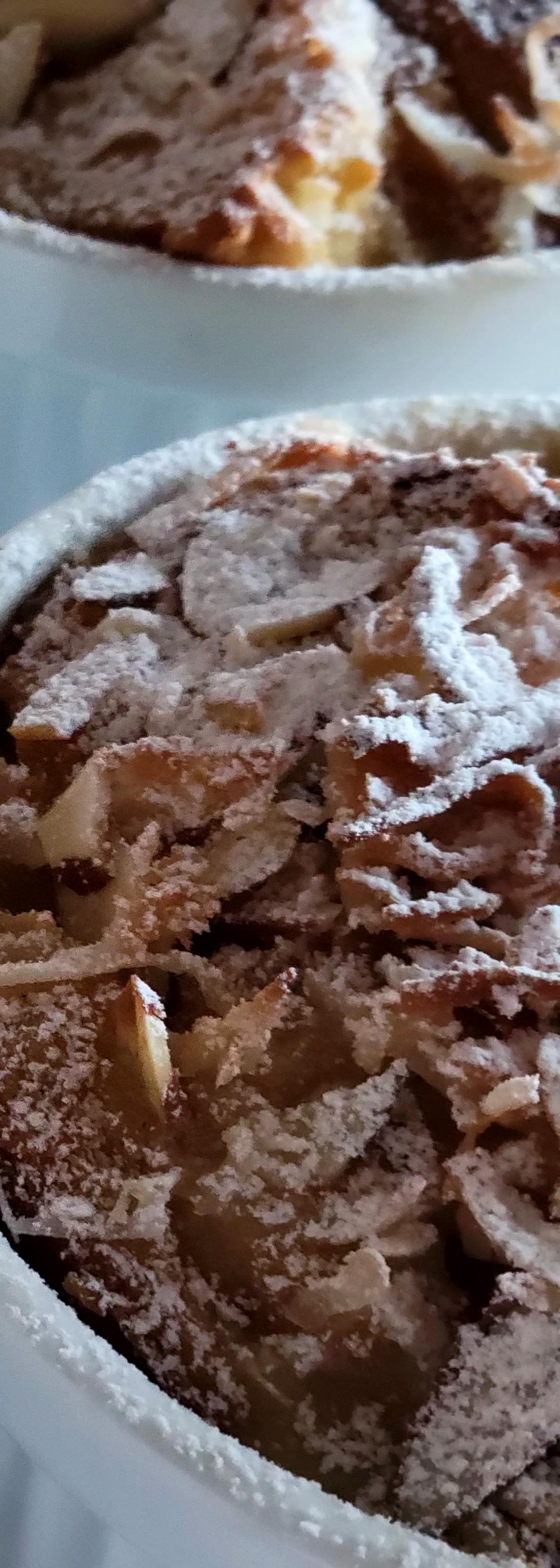
Surprise Bag from Breads Bakery NYC
What we got: Challah (braided loaf bread)
INGREDIENTS
1 challah loaf (cut into 1 inch cubes)
5 whole large eggs
1 13 oz. can coconut milk
2 cups unsweetened almond milk
1/2 cup honey
1 vanilla bean (split and seeded)
1 teaspoon vanilla extract
1/2 teaspoon almond extract
2 tablespoons amaretto liqueur
1/2 teaspoon kosher salt
1/2 cup sliced almonds
1 cup dried, sweetened coconut flakes
2 tablespoons softened butter
4 tablespoons confectioners' sugar (for dusting)
Preheat the oven to 350 degrees F. Grease 4 ramekins using the softened butter and set them aside.
FOR THE CUSTARD
Whisk together the eggs, coconut milk, almond milk, honey, vanilla and almond extracts, vanilla seeds, amaretto, coconut flakes, and salt in a large bowl, and set aside.
FOR THE BREAD
If using fresh bread, take the bread and cut it into thick cubes. Place the cubes onto a sheet tray and toast them in the preheated oven for 5-10 minutes, until they are lightly browned.
If using day old bread, cut the bread into thick cubes and add them to a large mixing bowl. Pour on the custard and press the cubes lightly so all the bread is soaked with the custard. Set aside for 10 minutes.
BAKING
Use a ladle to spoon the bread and custard mixture into the 4 prepared ramekins. Top each bread pudding with sliced almonds. Place the ramekins into a roasting pan. Pour roughly 1 inch of hot tap into the roasting pan, being careful not to get any water into the custard. Cover the roasting pan tightly with aluminum foil, tenting the foil so it does not touch the pudding. Cut a few holes in the foil to allow the steam to escape. Bake covered for 30 minutes. Uncover and bake for an additional 30 minutes, or until the custard is set and a knife comes out clean. Dust with confectioners' sugar and serve.
53 MAR- APR 2023 wholereviewmag.com recipe food

54 MAR- APR 2023 wholereviewmag.com food recipe
Tomato Chutney
Grocery Bags from Eataly & Gastro Market

What we got: canned whole tomatoes, brown sugar, raisins
INGREDIENTS
1 28 oz. can peeled, whole tomatoes
1 medium red onion (sliced)
1 tablespoon minced garlic
1 teaspoon whole fennel seeds
3/4 cup dark brown sugar
1 teaspoon kosher salt
1/2 teaspoon black pepper
1/4 cup currants
1/4 cup black raisins
2/4 cup balsamic vinegar (6% acidity)
1 cup red wine
2 tablespoons extra virgin olive oil
Heat the extra virgin olive oil in a medium sauce pot set over medium heat. Add the sliced onion and fennel seeds. Sauté until onions are translucent. Add the minced garlic and cook for roughly 60 seconds. Add the tomatoes, brown sugar, currants, raisins, salt, pepper, vinegar, and wine. Cook covered over medium low heat for 45 minutes. Remove the lid and cook uncovered for 25 minutes or until the chutney is the desired thickness.
CANNING
Canning is an important of the preparation process for most chutneys. This chutney can be used right away, but is best if allowed to mature for at least two weeks. Before preserving the chutney, prepare the jars by sterilizing them.
01 Place the empty jars rightside-up in a large pot.
02 Completely cover the jars with hot (not boiling) water. The water should be one inch above the top of the jars.
03 Bring the water to a boil over high heat.
04 Boil the jars for 25 minutes.
05 Turn off the heat and remove the jars using tongs, and set the jars aside to dry on a clean surface.
06 Pour hot chutney into each of the sterilized jars, filling the jars completely. (Filling the jars to the top prevents air flowing in side the jars.)
07 Allow chutney to cool inside the jars and then store in a cool place for at least two weeks. Once the chutney is open, immediately refrigerate. The opened chutney will keep for 1 week refrigerated.
Ponti brand balsamic vinegar is high density, and has a syrup-like quality. There are no added sugars, which makes this one of our favorites.
Afeltra brand tomatoes are a wonderful choice if you are purchasing canned tomatoes. They are deliciously sweet San Marzano tomatoes.
Ball canning jars (with lids) are the gold standard for mason/canning jars. They are not tempered, which means they are not meant to be used as bakeware, but are safe for use in home canning recipes.
55 MAR- APR 2023 wholereviewmag.com recipe food
BUTTERY TART DOUGH
INGREDIENTS
2 cups all purpose flour
1 1/2 teaspoons kosher salt
3 tablespoons cold vegetable shortening
6 tablespoons cold butter (1/2 inch diced)
1 whole egg
1 egg yolk
1/3 cup ice water
Place the flour, salt, butter, and shortening into the bowl of a food processor fitted with a steel blade. Pulse the mixture 10-12 times, until the butter is in small, pea-sized bits. Add the whole egg and egg yolk and pulse 3-4 times to combine. With the motor running, add the ice water through the feed tube and pulse until the dough starts to form a ball. Pour the dough onto a well floured surface and roll it into a flat disc. Wrap it in plastic and refrigerate for 30 minutes. If not using immediately, wrap it in plastic and place into the freezer. Thaw in the refrigerator before use.
Gluten free flour works the same way in this recipe.
Cup 4 Cup or other such brands that include xanthan gum in the flour mixture are ideal.

56 MAR- APR 2023 wholereviewmag.com
food recipe

57 MAR- APR 2023 wholereviewmag.com recipe food

58 MAR- APR 2023 wholereviewmag.com food recipe
Surprise Bag
Tomato Tart

Made with ingredients from Too Good to Go Surprise & Grocery Bags.
INGREDIENTS
Tart dough for crust (recipe on p. 58)
1.5 lbs of vine ripe tomatoes
1 cup whole basil leaves
1/2 cup whole tarragon leaves
4 cloves of garlic
1/2 teaspoon kosher salt
1/2 teaspoon black pepper
1/2 cup extra virgin olive oil
1 tablespoon of fresh lemon juice
1 cup of tomato chutney (recipe on p. 55 )
1/2 cup of grated Parmesan cheese
3/4 lb of grated Gruyere cheese
Preheat the oven to 350 degrees F. Line a sheet pan with parchment paper or a silicone baking mat.
FOR THE TOMATOES
Wash, dry, and slice the tomatoes. Put them into a large mixing bowl. Put the tarragon, basil, and garlic into the bowl of a food processor fitted with a steel blade and process until finely minced. Keep the motor running and pour olive oil down the feed tube and process until combined. Pour freshly
59 MAR- APR 2023 wholereviewmag.com recipe food
squeezed lemon juice over the mixture and stir with a spoon. Pour the mixture over the tomatoes and toss gently. Reserve roughly 2 tablespoons for the top. Set aside.
FOR THE CRUST
On a well-floured surface, roll the dough out to a 9 x 12 rectangle and transfer it to the prepared sheet pan. Place a sheet pan of the same size directly on top of the pastry and bake for 15 minutes. (Alternatively, line the pastry with parchment and fill with pie weights or dried beans.) After 15 minutes in the oven, remove the sheet pan (or the parchment, pie weights/dried beans). Prick the pastry with a fork all across the top. Bake for another 10 minutes, until lightly browned. Set aside, allowing the crust to cool completely.
ASSEMBLY
Once the crust has cooled completely, spoon the tomato chutney on. Sprinkle an even layer of Gruyere and Parmesan over the chutney, reserving 1/4 cup of Gruyere and two tablespoons of Parmesan for the top. Place overlapping tomatoes in rows on top. The tomatoes will release quite a lot of liquid during the marinating process. Discard the liquid. Pour the reserved herb and garlic oil over the tomatoes. Top with the reserved 1/4 cup of Gruyere and 2 tablespoons of Parmesan. Bake for 30 minutes. Cool slightly, cut into squares and serve hot or at room temperature.
Change it up!
Play around with the flavor by topping your tomato tart with different cheeses like Fontina Val D'Aosta, Pecorino Romano, Gouda, Mozarella, or Manchego


60 MAR- APR 2023 wholereviewmag.com
food recipe

Making everyday life a stage
Now Accepting Submissions
The Whole Review is happy to accept unsolicited manuscripts. Writers should familiarize themselves with the magazine before sending their submission, and include with it a cover letter giving their thesis, an explanation of why it’s an important thesis to argue in this magazine, reference to any similar articles the magazine has published recently, and a short biography. Submit inquiries and manuscripts to:contact@wholereviewmag. com.
CONNECT WITH US
wholereviewmag
cstarsoftomorrow
cstarsoftomorrow
wholereviewmag

cstarsoftomorro
Courtney’s Stars of Tomorrow
Courtney’s Stars of Tomorrow
www.cstarsoftomorrow.com
www. wholereviewmag.com

© Courtney’s Stars of Tomorrow 2023. All Rights Reserved. No part of this magazine may be reproduced without written permission of the publisher. All information contained in this magazine is, as far as we are aware, correct at the time of going to press. Courtney’s Stars of Tomorrow cannot accept responsibility for errors or inaccuracies in such information. If you submit unsolicited material to us, you automatically grant Courtney’s Stars of Tomorrow a license to publish your submission in whole or in part in all editions of the magazine. All material is sent at your own risk. Although every care is taken, neither Courtney’s Stars of Tomorrow, nor its employees, agents or subcontractors shall be held liable for loss or damage. Courtney’s Stars of Tomorrow endeavors to respect the intellectual property of the owners of copyrighted material reproduced herein. If you identify yourself as the copyright holder of material we have wrongfully attributed, please contact the office.
wholereviewmag.com
62 MAR- APR 2023

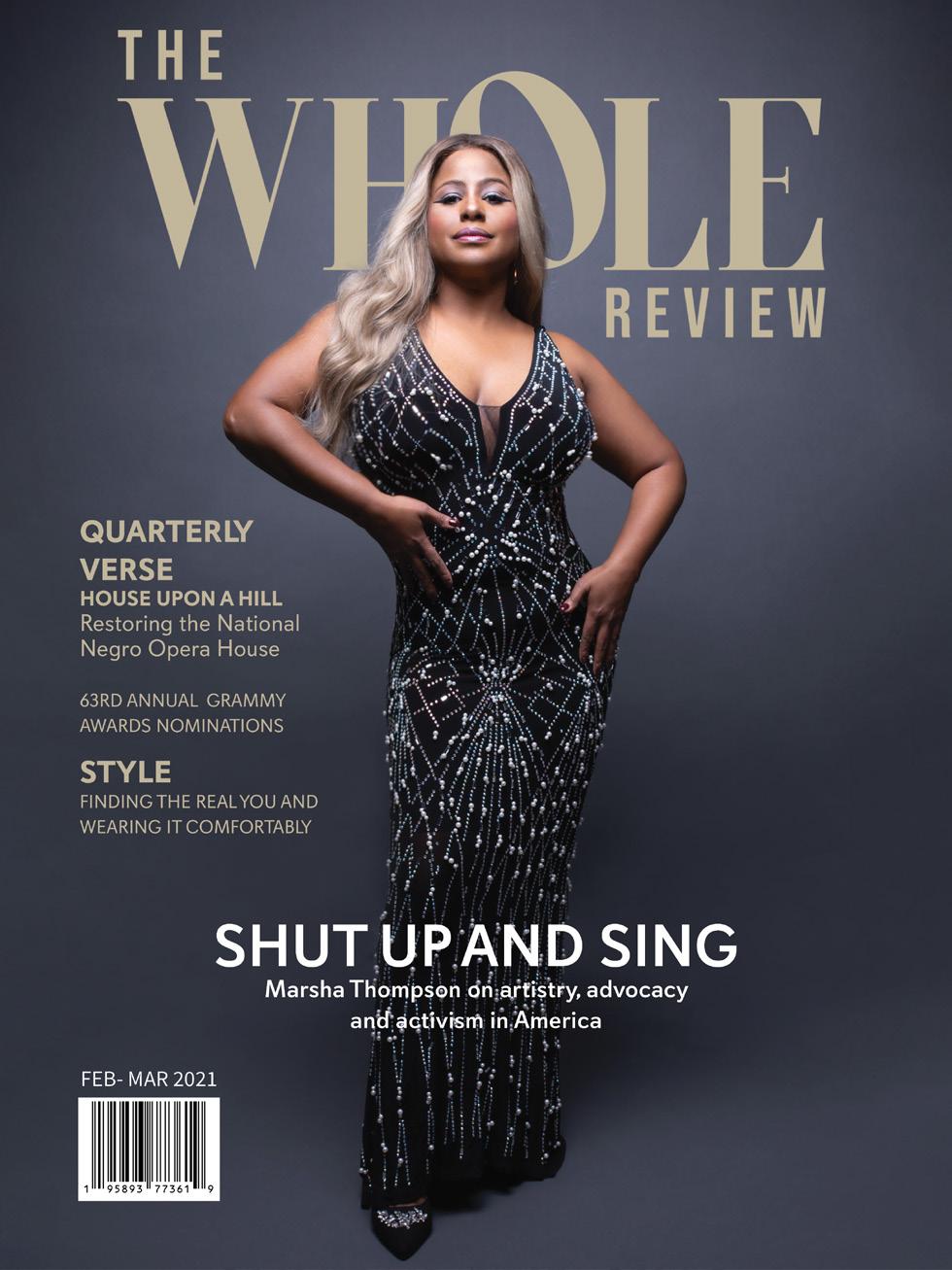
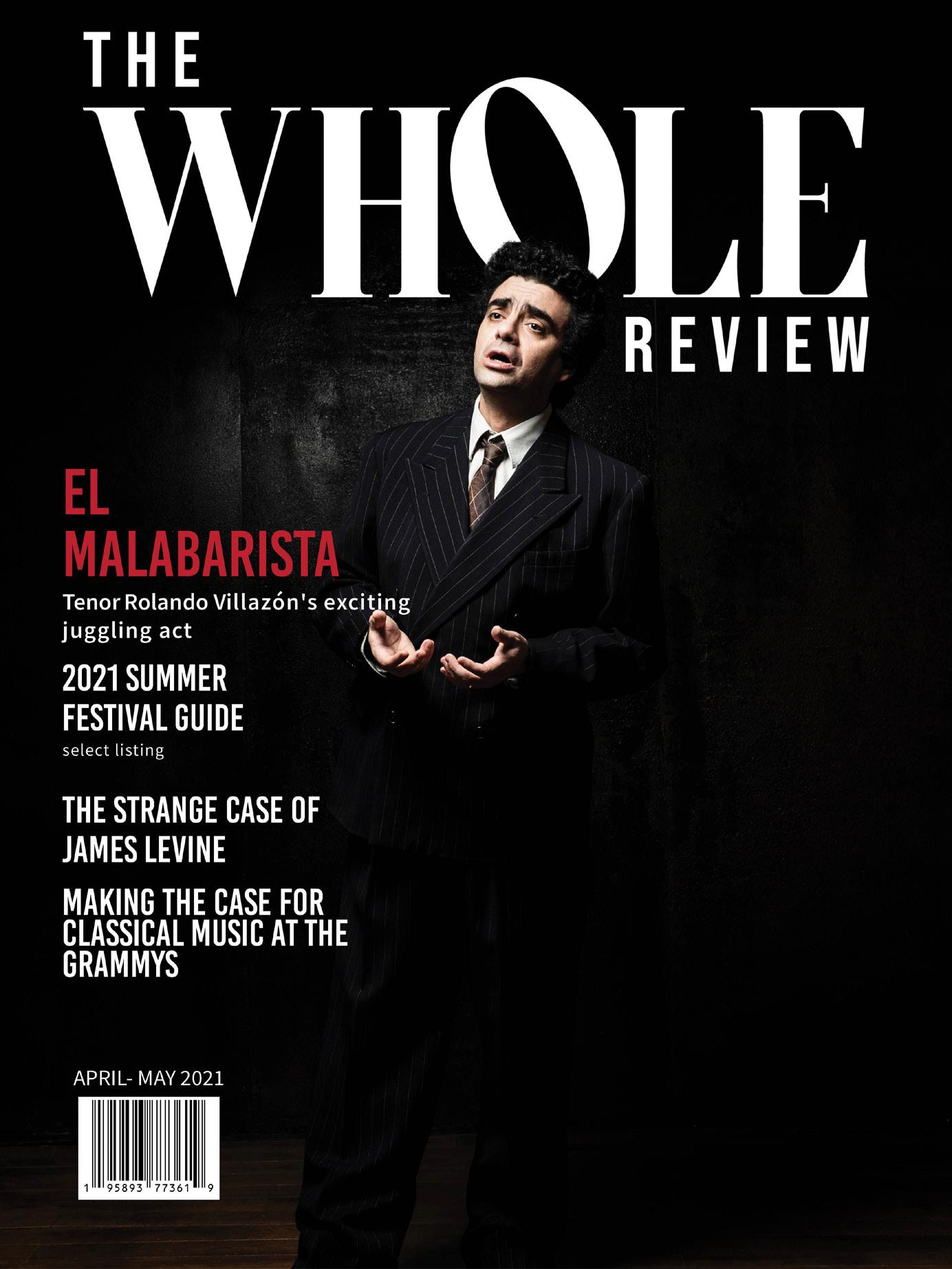



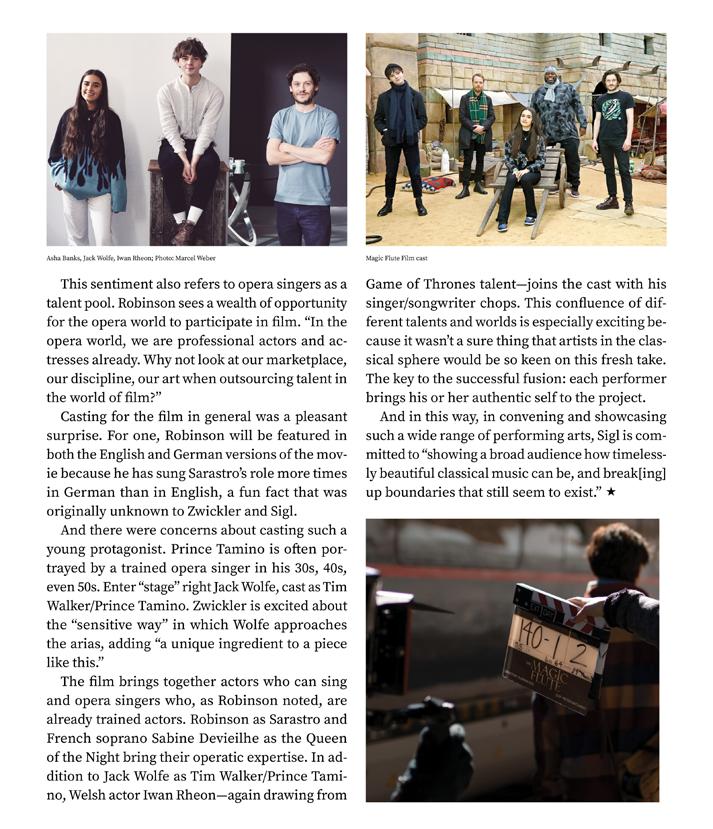
For a limited time read 6 issues for freeThen only $7.95 digital/ $15.95 print SUBSCRIBE www.wholereviewmag.com














 by Courtney Carey
by Courtney Carey




























 by Courtney Carey
by Courtney Carey













 By Liz Colavita
Photographs by Lawrence Brownlee
By Liz Colavita
Photographs by Lawrence Brownlee













































